
- Majors & Careers
- Online Grad School
- Preparing For Grad School
- Student Life

Top 10 Best PhD in Accounting Programs

Accounting is an abstract subject dealing with numbers and calculations. Personal finance requires strong attention to detail — imagine the meticulousness necessary to achieve a PhD in accounting! Prepare for a few years of mathematical and statistical study, and toning your analytical skills. The program offers a bright future, opening vast career possibilities and excellent job prospects.
A booming field, accounting roles for financial managers are estimated to grow by 17% from 2020 to 2030, according to the Bureau of Labor Statistics. This represents a much higher growth rate than the average for all professions.
Let’s explore the best accounting PhD programs so you can prepare for the next step in your finance career!
Table of Contents
Best PhD in Accounting Programs
The university of texas at austin, mccombs school of business.
PhD in Accounting

The University of Texas at Austin was ranked number one in the country for Accounting PhD programs by the US World & News Public Accounting Report . The University’s McCombs School offers one of the top accounting doctoral programs that welcomes students with diverse disciplines such as economics, mathematics , finance, and engineering.
- Specializations: Financial accounting, managerial accounting, auditing, and taxation.
- Duration : 5 years
- Delivery : On-campus
- Tuition : $1,000 per credit
- Financial aid: Grants, loans, assistantships, and fellowships
- Acceptance rate : 32%
- Location : Austin, TX
The University of Illinois Urbana-Champaign, Gies College of Business
PhD in Accountancy

The University of Illinois at Urbana Champaign is renowned for its top-notch accounting faculty, boasting a high accounting PhD programs ranking by the BYU Accounting Faculty Research Rankings . Out of all the best PhD accounting programs, this one emphasizes productivity and results the most while valuing quality student placements to give you real-world work experience.
- Courses : Mathematical statistics, probability theory, and constructs in accounting research.
- Credits : 96
- Tuition : $652 per credit
- Financial aid : Fellowships, teaching/research assistantships, and tuition waivers
- Acceptance rate : 63.3%
- Location : Champaign, IL
Stanford University, Graduate School of Business

Stanford is one of the most prestigious universities in the world, with 19 institutes encouraging interdisciplinary learning and a $1.69 billion sponsored research budget. It offers one of the country’s top accounting PhD programs, emphasizing both empirical and analytical research. Moreover, its balanced curriculum gives equal importance to coursework, research, and teaching.
- Courses : Financial reporting & management control, empirical accounting research, and microeconomic analysis.
- Duration : 4-5 years
- Tuition : Refer tuition page
- Financial aid: Grants, scholarships, fellowships, and research/teaching assistantships
- Acceptance rate: 5.2%
- Location : Stanford, CA
New York University, Leonard N. Stern School of Business

The Stern School of Business of NYU offers one of the world’s most well-known accounting doctorate programs. The program allows students to study with other schools within the university along with Stern.
- Courses : Empirical research in financial accounting, microeconomic theory, and regression & multivariate analysis.
- Duration : 4 years
- Financial aid: Fellowships and research/teaching assistantships
- Acceptance rate: 21.1%
- Location : New York City, NY
University of Pennsylvania, Wharton School

The University of Pennsylvania and Wharton School are world-renowned names in education. The school’s PhD in accounting program allows students to study with neighboring departments to gain exposure to other fields and innovative ideas from a wide range of disciplines.
- Courses : Empirical design in accounting research and advanced statistical inference.
- Course units: 16
- Financial aid : Full fellowships
- Acceptance rate : 9%
- Location : Philadelphia, PA
The University of Michigan – Ann Arbor, Stephen M. Ross School of Business

The University of Michigan is a prestigious higher learning institution and one of the best public schools in the country. Its PhD in accounting program encourages extensive collaboration between students and faculty in combined research opportunities.
- Courses : Contemporary accounting issues, pre-candidacy dissertation, and candidacy dissertation.
- Financial aid: Full funding and graduate assistantships
- Acceptance rate: 26%
- Location : Ann Arbor, MI
Northwestern University, Kellogg School of Management
PhD Accounting Information & Management

Northwestern University’s Kellogg School is one of the oldest business schools in the world and has made major contributions to business, management, and marketing fields. It offers an information-focused accounting doctorate program with research scope for subjects like information intermediaries in capital markets, properties, and transformations in the information environment of companies.
- Courses : Research in accounting theory, empirical research in accounting, and special topics in empirical accounting research.
- Duration : 5.5 years
- Tuition : $13,085 per quarter
- Financial aid : Scholarships, fellowships, and teaching/research assistantships
- Acceptance rate: 9.3%
- Location : Evanston, IL
The University of Chicago, Booth School of Business

The University of Chicago’s Booth School of Business is known for its eminent faculty delivering groundbreaking research in accounting. This PhD offers doctoral candidates the freedom to explore their own research interests. They also get the opportunity to perform collaborative scholarly work with faculty members.
- Tuition : $66,096 per three quarters ($32,400 for fifth year)
- Financial aid : Grants, teaching/research assistantships, and fellowships
- Acceptance rate: 7.3%
- Location : Chicago, IL
University of North Carolina Chapel Hill, Kenan Flagler Business School

UNC at Chapel Hill is the flagship university of the University of North Carolina system. It’s known as a Public Ivy school, offering a high-quality curriculum taught by renowned faculty. UNC’s Kenan Flagler Business School is world-famous, supporting research in international accounting, accounting information in capital markets, and accounting standard-setting.
- Courses : Empirical accounting research, managerial accounting, and tax research.
- Credits : 48-61
- Financial aid: Teaching fellowship, research/teaching assistantships, and tuition waivers
- Acceptance rate: 25%
- Location : Chapel Hill, North Carolina
The University of Mississippi, Patterson School of Accountancy

The University of Mississippi’s Patterson School is entirely dedicated to accounting studies. Its PhD in accounting program aims to develop scholars with a strong foundation in the historical background of accounting and expert research skills.
- Courses : Contemporary accounting theory, and financial accounting, auditing & accounting information systems research.
- Credits : 77
- Tuition : $504 per credit hour
- Financial aid: Scholarships, fellowships
- Acceptance rate: 88%
- Location : University, Mississippi
What Do You Need to Get a PhD in Accounting?
Generally, you only need a bachelor’s degree in accounting or a related discipline to apply for a PhD program in accounting. Very few programs require a master’s qualification.
The exact requirements vary depending on the program, but you’ll usually need to submit the following to the selection committee:
- GRE or GMAT scores
- Undergraduate transcripts
- Personal essay or research proposal
- Recommendation letters
- Academic resume
Always check specific program requirements for colleges you’re interested in, and contact academic advisors in advance to verify. The top accounting PhD programs can be pretty competitive, so it’s best to carve out ample time to prepare a solid application!
Preparing for an Accounting Doctorate Program
Besides accounting, your PhD program will cover in-depth study of other subjects like economics and statistics. Our advice? Do some background preparation on these subjects, either through self-study or a foundational course.
Additionally, you should prepare yourself for serious research. Unlike undergraduate research, which typically aims to summarize existing knowledge, the goal of a PhD is to make new discoveries. Finally, you should brush up on your teaching skills because your PhD will likely involve giving seminars or tutoring undergraduate students.
Things to Consider When Choosing an Accounting PhD Program
Choosing an accounting PhD program is an individual decision. The right choice depends on various factors that can differ widely depending on the person.
However, here are a few factors that are relevant to practically everyone:
- Budget – What is the cost of tuition and other fees? What financial aid is available?
- Specializations – What disciplines are offered under the program, and what are the faculty’s areas of expertise? How do these match your passions and career goals?
- Program reputation – Is the school well-known? What accreditations does it have?
- Delivery method – Is the program offered on-campus, online, or in a hybrid format?
- Location – If you need to attend classes in person, even occasionally, how easy is it for you to get to campus?
Why Get a Doctorate in Accounting?
If you’re proficient with analytical and mathematical skills, a PhD in accounting can help you secure some of the highest-paying jobs in finance and economics. In these roles, you’ll apply the theoretical concepts you studied during your doctorate to solve real market problems, or transfer your knowledge to the next generation by teaching.
Jobs and Salaries for Doctors of Accounting
A doctorate in accounting can qualify you for a range of exciting and high-level roles in the finance sector.
Here are just some of the roles you’ll be eligible for once you’ve completed your PhD in Accounting, with the median annual salary for each:
- Associate Professor in Accounting ( $80,799 )
- Financial Manager ( $95,518 )
- Finance Director ( $115,603 )
- Analyst/Advisor ( $62,924 )
- Senior Financial Analyst ( $83,091 )
For more on job opportunities in the sector, take a look at our guide to the top 10 best jobs for MBA graduates .
What is the Average Cost of PhD Accounting Programs?
The cost of a PhD in accounting can vary greatly depending on the program and school. Remember, the total cost includes not only tuition, but also living expenses, fees and other study expenses.
Generally, prestigious private universities cost more, while public universities offer lower tuition and fees. Additionally, state residents pay less tuition and fees for state universities than non-resident students. Considering all these factors, the total cost for a doctorate in accounting could be anything from around $10,000 to $70,000 per year.
Wrapping Up
A PhD in accounting will qualify you for some of the best job opportunities in the business and commercial world today. Alternatively, after graduation you could pursue a career in higher education, either in research or as a professor. With experts predicting an increase in accounting job opportunities in the sector in the coming years, the future looks bright for graduates with a doctorate in accounting.
For more on the best courses in finance and accounting, take a look at our guides to the best Master’s in Accounting , the best online MBA Programs , and the top 20 online PhD programs in 2022 .
What Does a PhD in Accounting Do?
With a PhD in accounting, you can work as a professor, consultant, financial manager, analyst, researcher, or one of many high-level jobs in the accounting field.
Can You Get a Doctorate in Accounting?
Yes. Many universities offer doctorate in accounting programs. As long as you meet the eligibility criteria (usually an undergraduate degree in a related field) and present a strong application, you can start your doctorate in accounting.
How Hard is a PhD in Accounting?
Like with any PhD, you need to have a high level of dedication, self-discipline and the ability to conduct strong research to earn a doctorate in accounting. You will also need to demonstrate strong writing, analytical, and presentation skills.
Can an Accountant Have a PhD?
You don’t need a PhD to work as an accountant. Depending on the role, most accountants either have a bachelor’s or a master’s in accounting . However, an accountant who wants to further their career or research in academia may choose to get a PhD in the field.
Do You Need a PhD to Teach Accounting?
A PhD is not typically required to teach accounting in certain settings, such as a community college. However, if you have one, you’ll have a lot more teaching options, including more lucrative positions at universities.

Lisa Marlin
Lisa is a full-time writer specializing in career advice, further education, and personal development. She works from all over the world, and when not writing you'll find her hiking, practicing yoga, or enjoying a glass of Malbec.
- Lisa Marlin https://blog.thegradcafe.com/author/lisa-marlin/ ACBSP Vs AACSB: Which Business Program Accreditations is Better?
- Lisa Marlin https://blog.thegradcafe.com/author/lisa-marlin/ BA vs BS: What You Need to Know [2024 Guide]
- Lisa Marlin https://blog.thegradcafe.com/author/lisa-marlin/ The 19 Best MBA Scholarships to Apply for [2024-2025]
- Lisa Marlin https://blog.thegradcafe.com/author/lisa-marlin/ 25 Best Gifts for Law Students for 2024
TheGradCafe and Jobbio join forces to connect top talent with great companies
Top 10 best phd in mathematics programs, related posts.

- 73% of job seekers believe a degree is needed for a well-paying role–but is it?

Tech Talent Crunch: Cities with More Jobs Than Workers

The Most Under-Rated Career Advancement Tip for 2024

Top 5 Best Psychology PhD Programs in 2024

Good News For Early Careers: Skills-Based Hiring is Surging
These Are The Best States To Start Your Tech Career

Leave a Reply Cancel reply
Your email address will not be published. Required fields are marked *
Save my name, email, and website in this browser for the next time I comment.
Recent Posts
- Is a Master’s Degree Worth It? [2024 Guide]
- Graduate Certificate vs Degree: What’s the Difference? [2024 Guide]
- ACBSP Vs AACSB: Which Business Program Accreditations is Better?
- What is a Good GRE Score?

© 2024 TheGradCafe.com All rights reserved
- Partner With Us
- Results Search
- Submit Your Results
- Write For Us
About Stanford GSB
- The Leadership
- Dean’s Updates
- School News & History
- Commencement
- Business, Government & Society
- Centers & Institutes
- Center for Entrepreneurial Studies
- Center for Social Innovation
- Stanford Seed
About the Experience
- Learning at Stanford GSB
- Experiential Learning
- Guest Speakers
- Entrepreneurship
- Social Innovation
- Communication
- Life at Stanford GSB
- Collaborative Environment
- Activities & Organizations
- Student Services
- Housing Options
- International Students
Full-Time Degree Programs
- Why Stanford MBA
- Academic Experience
- Financial Aid
- Why Stanford MSx
- Research Fellows Program
- See All Programs
Non-Degree & Certificate Programs
- Executive Education
- Stanford Executive Program
- Programs for Organizations
- The Difference
- Online Programs
- Stanford LEAD
- Stanford Innovation and Entrepreneurship Certificate
- Seed Transformation Program
- Aspire Program
- Seed Spark Program
- Faculty Profiles
- Academic Areas
- Awards & Honors
- Conferences
Faculty Research
- Publications
- Working Papers
- Case Studies
Research Hub
- Research Labs & Initiatives
- Business Library
- Data, Analytics & Research Computing
- Behavioral Lab
Research Labs
- Cities, Housing & Society Lab
- Golub Capital Social Impact Lab
Research Initiatives
- Corporate Governance Research Initiative
- Corporations and Society Initiative
- Policy and Innovation Initiative
- Rapid Decarbonization Initiative
- Stanford Latino Entrepreneurship Initiative
- Value Chain Innovation Initiative
- Venture Capital Initiative
- Career & Success
- Climate & Sustainability
- Corporate Governance
- Culture & Society
- Finance & Investing
- Government & Politics
- Leadership & Management
- Markets & Trade
- Operations & Logistics
- Opportunity & Access
- Organizational Behavior
- Political Economy
- Social Impact
- Technology & AI
- Opinion & Analysis
- Email Newsletter
Welcome, Alumni
- Communities
- Digital Communities & Tools
- Regional Chapters
- Women’s Programs
- Identity Chapters
- Find Your Reunion
- Career Resources
- Job Search Resources
- Career & Life Transitions
- Programs & Services
- Career Video Library
- Alumni Education
- Research Resources
- Volunteering
- Alumni News
- Class Notes
- Alumni Voices
- Contact Alumni Relations
- Upcoming Events
Admission Events & Information Sessions
- MBA Program
- MSx Program
- PhD Program
- Alumni Events
- All Other Events
- Requirements
- Requirements: Behavioral
- Requirements: Quantitative
- Requirements: Macro
- Requirements: Micro
- Annual Evaluations
- Field Examination
- Research Activities
- Research Papers
- Dissertation
- Oral Examination
- Current Students
- Entering Class Profile
- Education & CV
- GMAT & GRE
- International Applicants
- Statement of Purpose
- Letters of Recommendation
- Reapplicants
- Application Fee Waiver
- Deadline & Decisions
- Job Market Candidates
- Academic Placements
- Stay in Touch
- Fields of Study
- Student Life
Our doctoral program in the accounting field offers broadly based, interdisciplinary training that develops the student’s skills in conducting both analytical and empirical research.
Emphasis is placed on developing a conceptual framework and set of skills for addressing questions broadly related to accounting information. While issues of financial reporting, managerial accounting, corporate governance and taxation are the ultimate concern, special emphasis is given to applying basic knowledge of economics, decision theory, and statistical inference to accounting issues.
Spectrum of Interests and Research Methods
Faculty research represents a broad spectrum of interests and research methods:
- Empirical and analytical research on the relation between accounting information and capital market behavior examines the characteristics of accounting amounts, the effect of accounting disclosures on the capital market, the role of analysts as information intermediaries, and the effects of management discretion. Issues examined also include the impact of financial information on stock and option prices, earnings response coefficients, market microstructure, earnings management, voluntary disclosures, and the effect of changes in accounting standards and disclosure requirements.
- Problems of information asymmetries among management, investors, and others are currently under study. This research investigates, analytically and empirically, the structure of incentive systems and monitoring systems under conditions of information asymmetry. Research on moral hazard, adverse selection, risk sharing, and signaling is incorporated into this work.
- Other ongoing projects include research on the economic effects of auditing and regulation of accounting information, and analysis of tax-induced incentive problems in organizations.
- Additional topics of faculty interest include analytical and empirical research on productivity measurement, accounting for quality, activity-based costing for operations and marketing, and strategic costing and pricing.
Preparation and Qualifications
It is desirable for students to have a solid understanding of applied microeconomic theory, econometrics and mathematics (linear algebra, real analysis, optimization, probability theory) prior to the start of the program. Adequate computer programming skills (e.g. Matlab, SAS, STAT, Python) are necessary in coursework. A traditional accounting background such as CPA is not required.
Faculty in Accounting
Christopher s. armstrong, jung ho choi, george foster, brandon gipper, ron kasznik, john d. kepler, jinhwan kim, rebecca lester, iván marinovic, maureen mcnichols, joseph d. piotroski, kevin smith, emeriti faculty, mary e. barth, william h. beaver, david f. larcker, charles m. c. lee, stefan j. reichelstein, recent publications in accounting, elpr: a new measure of capital adequacy for commercial banks, fraudulent financial reporting and the consequences for employees, board diversity and shareholder voting, recent insights by stanford business, tax cuts in the uk gave an unexpected boost to african economies, the hidden costs of clicking the “buy now, pay later” button, why some countries want companies to think inside the “innovation box”.
- See the Current DEI Report
- Supporting Data
- Research & Insights
- Share Your Thoughts
- Search Fund Primer
- Teaching & Curriculum
- Affiliated Faculty
- Faculty Advisors
- Louis W. Foster Resource Center
- Defining Social Innovation
- Impact Compass
- Global Health Innovation Insights
- Faculty Affiliates
- Student Awards & Certificates
- Changemakers
- Dean Jonathan Levin
- Dean Garth Saloner
- Dean Robert Joss
- Dean Michael Spence
- Dean Robert Jaedicke
- Dean Rene McPherson
- Dean Arjay Miller
- Dean Ernest Arbuckle
- Dean Jacob Hugh Jackson
- Dean Willard Hotchkiss
- Faculty in Memoriam
- Stanford GSB Firsts
- Certificate & Award Recipients
- Dean’s Remarks
- Keynote Address
- Teaching Approach
- Analysis and Measurement of Impact
- The Corporate Entrepreneur: Startup in a Grown-Up Enterprise
- Data-Driven Impact
- Designing Experiments for Impact
- Digital Business Transformation
- The Founder’s Right Hand
- Marketing for Measurable Change
- Product Management
- Public Policy Lab: Financial Challenges Facing US Cities
- Public Policy Lab: Homelessness in California
- Lab Features
- Curricular Integration
- View From The Top
- Formation of New Ventures
- Managing Growing Enterprises
- Startup Garage
- Explore Beyond the Classroom
- Stanford Venture Studio
- Summer Program
- Workshops & Events
- The Five Lenses of Entrepreneurship
- Leadership Labs
- Executive Challenge
- Arbuckle Leadership Fellows Program
- Selection Process
- Training Schedule
- Time Commitment
- Learning Expectations
- Post-Training Opportunities
- Who Should Apply
- Introductory T-Groups
- Leadership for Society Program
- Certificate
- 2023 Awardees
- 2022 Awardees
- 2021 Awardees
- 2020 Awardees
- 2019 Awardees
- 2018 Awardees
- Social Management Immersion Fund
- Stanford Impact Founder Fellowships and Prizes
- Stanford Impact Leader Prizes
- Social Entrepreneurship
- Stanford GSB Impact Fund
- Economic Development
- Energy & Environment
- Stanford GSB Residences
- Environmental Leadership
- Stanford GSB Artwork
- A Closer Look
- California & the Bay Area
- Voices of Stanford GSB
- Business & Beneficial Technology
- Business & Sustainability
- Business & Free Markets
- Business, Government, and Society Forum
- Get Involved
- Second Year
- Global Experiences
- JD/MBA Joint Degree
- MA Education/MBA Joint Degree
- MD/MBA Dual Degree
- MPP/MBA Joint Degree
- MS Computer Science/MBA Joint Degree
- MS Electrical Engineering/MBA Joint Degree
- MS Environment and Resources (E-IPER)/MBA Joint Degree
- Academic Calendar
- Clubs & Activities
- LGBTQ+ Students
- Military Veterans
- Minorities & People of Color
- Partners & Families
- Students with Disabilities
- Student Support
- Residential Life
- Student Voices
- MBA Alumni Voices
- A Week in the Life
- Career Support
- Employment Outcomes
- Cost of Attendance
- Knight-Hennessy Scholars Program
- Yellow Ribbon Program
- BOLD Fellows Fund
- Application Process
- Loan Forgiveness
- Contact the Financial Aid Office
- Evaluation Criteria
- English Language Proficiency
- Personal Information, Activities & Awards
- Professional Experience
- Optional Short Answer Questions
- Application Fee
- Reapplication
- Deferred Enrollment
- Joint & Dual Degrees
- Event Schedule
- Ambassadors
- New & Noteworthy
- Ask a Question
- See Why Stanford MSx
- Is MSx Right for You?
- MSx Stories
- Leadership Development
- Career Advancement
- Career Change
- How You Will Learn
- Admission Events
- Personal Information
- Information for Recommenders
- GMAT, GRE & EA
- English Proficiency Tests
- After You’re Admitted
- Daycare, Schools & Camps
- U.S. Citizens and Permanent Residents
- Faculty Mentors
- Current Fellows
- Standard Track
- Fellowship & Benefits
- Group Enrollment
- Program Formats
- Developing a Program
- Diversity & Inclusion
- Strategic Transformation
- Program Experience
- Contact Client Services
- Campus Experience
- Live Online Experience
- Silicon Valley & Bay Area
- Digital Credentials
- Faculty Spotlights
- Participant Spotlights
- Eligibility
- International Participants
- Stanford Ignite
- Frequently Asked Questions
- Operations, Information & Technology
- Classical Liberalism
- The Eddie Lunch
- Accounting Summer Camp
- Videos, Code & Data
- California Econometrics Conference
- California Quantitative Marketing PhD Conference
- California School Conference
- China India Insights Conference
- Homo economicus, Evolving
- Political Economics (2023–24)
- Scaling Geologic Storage of CO2 (2023–24)
- A Resilient Pacific: Building Connections, Envisioning Solutions
- Adaptation and Innovation
- Changing Climate
- Civil Society
- Climate Impact Summit
- Climate Science
- Corporate Carbon Disclosures
- Earth’s Seafloor
- Environmental Justice
- Operations and Information Technology
- Organizations
- Sustainability Reporting and Control
- Taking the Pulse of the Planet
- Urban Infrastructure
- Watershed Restoration
- Junior Faculty Workshop on Financial Regulation and Banking
- Ken Singleton Celebration
- Quantitative Marketing PhD Alumni Conference
- Presentations
- Theory and Inference in Accounting Research
- Stanford Closer Look Series
- Quick Guides
- Core Concepts
- Journal Articles
- Glossary of Terms
- Faculty & Staff
- Researchers & Students
- Research Approach
- Charitable Giving
- Financial Health
- Government Services
- Workers & Careers
- Short Course
- Adaptive & Iterative Experimentation
- Incentive Design
- Social Sciences & Behavioral Nudges
- Bandit Experiment Application
- Conferences & Events
- Reading Materials
- Energy Entrepreneurship
- Faculty & Affiliates
- SOLE Report
- Responsible Supply Chains
- Current Study Usage
- Pre-Registration Information
- Participate in a Study
- Founding Donors
- Location Information
- Participant Profile
- Network Membership
- Program Impact
- Collaborators
- Entrepreneur Profiles
- Company Spotlights
- Seed Transformation Network
- Responsibilities
- Current Coaches
- How to Apply
- Meet the Consultants
- Meet the Interns
- Intern Profiles
- Collaborate
- Research Library
- News & Insights
- Program Contacts
- Databases & Datasets
- Research Guides
- Consultations
- Research Workshops
- Career Research
- Research Data Services
- Course Reserves
- Course Research Guides
- Material Loan Periods
- Fines & Other Charges
- Document Delivery
- Interlibrary Loan
- Equipment Checkout
- Print & Scan
- MBA & MSx Students
- PhD Students
- Other Stanford Students
- Faculty Assistants
- Research Assistants
- Stanford GSB Alumni
- Telling Our Story
- Staff Directory
- Site Registration
- Alumni Directory
- Alumni Email
- Privacy Settings & My Profile
- Success Stories
- The Story of Circles
- Support Women’s Circles
- Stanford Women on Boards Initiative
- Alumnae Spotlights
- Insights & Research
- Industry & Professional
- Entrepreneurial Commitment Group
- Recent Alumni
- Half-Century Club
- Fall Reunions
- Spring Reunions
- MBA 25th Reunion
- Half-Century Club Reunion
- Faculty Lectures
- Ernest C. Arbuckle Award
- Alison Elliott Exceptional Achievement Award
- ENCORE Award
- Excellence in Leadership Award
- John W. Gardner Volunteer Leadership Award
- Robert K. Jaedicke Faculty Award
- Jack McDonald Military Service Appreciation Award
- Jerry I. Porras Latino Leadership Award
- Tapestry Award
- Student & Alumni Events
- Executive Recruiters
- Interviewing
- Land the Perfect Job with LinkedIn
- Negotiating
- Elevator Pitch
- Email Best Practices
- Resumes & Cover Letters
- Self-Assessment
- Whitney Birdwell Ball
- Margaret Brooks
- Bryn Panee Burkhart
- Margaret Chan
- Ricki Frankel
- Peter Gandolfo
- Cindy W. Greig
- Natalie Guillen
- Carly Janson
- Sloan Klein
- Sherri Appel Lassila
- Stuart Meyer
- Tanisha Parrish
- Virginia Roberson
- Philippe Taieb
- Michael Takagawa
- Terra Winston
- Johanna Wise
- Debbie Wolter
- Rebecca Zucker
- Complimentary Coaching
- Changing Careers
- Work-Life Integration
- Career Breaks
- Flexible Work
- Encore Careers
- D&B Hoovers
- Data Axle (ReferenceUSA)
- EBSCO Business Source
- Firsthand (Vault)
- Global Newsstream
- Market Share Reporter
- ProQuest One Business
- Student Clubs
- Entrepreneurial Students
- Stanford GSB Trust
- Alumni Community
- How to Volunteer
- Springboard Sessions
- Consulting Projects
- 2020 – 2029
- 2010 – 2019
- 2000 – 2009
- 1990 – 1999
- 1980 – 1989
- 1970 – 1979
- 1960 – 1969
- 1950 – 1959
- 1940 – 1949
- Service Areas
- ACT History
- ACT Awards Celebration
- ACT Governance Structure
- Building Leadership for ACT
- Individual Leadership Positions
- Leadership Role Overview
- Purpose of the ACT Management Board
- Contact ACT
- Business & Nonprofit Communities
- Reunion Volunteers
- Ways to Give
- Fiscal Year Report
- Business School Fund Leadership Council
- Planned Giving Options
- Planned Giving Benefits
- Planned Gifts and Reunions
- Legacy Partners
- Strategic Initiatives
- Giving News & Stories
- Giving Deadlines
- Development Staff
- Submit Class Notes
- Class Secretaries
- Board of Directors
- Health Care
- Sustainability
- Class Takeaways
- All Else Equal: Making Better Decisions
- If/Then: Business, Leadership, Society
- Grit & Growth
- Think Fast, Talk Smart
- Spring 2022
- Spring 2021
- Autumn 2020
- Summer 2020
- Winter 2020
- In the Media
- For Journalists
- DCI Fellows
- Other Auditors
- Academic Calendar & Deadlines
- Course Materials
- Entrepreneurial Resources
- Campus Drive Grove
- Campus Drive Lawn
- CEMEX Auditorium
- King Community Court
- Seawell Family Boardroom
- Stanford GSB Bowl
- Stanford Investors Common
- Town Square
- Vidalakis Courtyard
- Vidalakis Dining Hall
- Catering Services
- Policies & Guidelines
- Reservations
- Contact Faculty Recruiting
- Lecturer Positions
- Postdoctoral Positions
- Accommodations
- CMC-Managed Interviews
- Recruiter-Managed Interviews
- Virtual Interviews
- Campus & Virtual
- Search for Candidates
- Think Globally
- Recruiting Calendar
- Recruiting Policies
- Full-Time Employment
- Summer Employment
- Entrepreneurial Summer Program
- Global Management Immersion Experience
- Social-Purpose Summer Internships
- Process Overview
- Project Types
- Client Eligibility Criteria
- Client Screening
- ACT Leadership
- Social Innovation & Nonprofit Management Resources
- Develop Your Organization’s Talent
- Centers & Initiatives
- Student Fellowships

About / Departments
Department of Accounting | Ph.D. Overview
Ph.d. overview.

- Stern’s accounting faculty has a wide range of research interests and continuously publishes works in all major academic accounting research journals such as the Journal of Accounting Research, Journal of Accounting and Economics, the Accounting Review, the Review of Accounting Studies, and Contemporary Accounting Research. Furthermore, Stern’s accounting faculty has published in such major Finance journals as the Journal of Finance, the Journal of Financial Economics, and the Journal of Financial and Quantitative Analysis.
- The Department boasts a large and diverse body of Ph.D. students, who assist faculty with research projects early on in their doctoral program and often become co-authors to papers published in prestigious accounting journals.
- The admissions process is a rigorous one and important criteria are: an interest in doing research and teaching in accounting, strong quantitative skills, and an ability to communicate effectively. There are no formal education requirements other than possession of a bachelor's degree - an MBA is not required.
- The quality of our Ph.D. program (ranked 7th in the United States by U.S. News and World Report) manifests itself by, among other things, our success in placing our graduates.
Click here to learn more about the PhD admissions process.
Accounting, Ph.D. Program Coordinators
NYU Stern Henry Kaufman Management Center 44 West 4th Street Suite No. 10-77 Phone: 212-998-0025 Email: [email protected]
Xiaojing Meng
NYU Stern Henry Kaufman Management Center 44 West 4th Street Suite No. 10-84 Phone: 212-992-6812 Email: [email protected]
Explore Stern PhD
- Meet with Us

- Youth Program
- Wharton Online
PhD Program
Wharton’s Ph.D. program in Accounting trains students to be successful academic researchers. To this end, the program is designed to provide students with opportunities to learn to develop their own research ideas and to learn to implement appropriate research methods. Students learn these skills through rigorous coursework, as well as mentoring relationships and often research projects with faculty members that provide “on-the-job” training. When a student completes the program, he or she will have a dissertation and other publishable research in progress that can credibly communicate to the academic community the student’s skills and potential for future success as a researcher.
For examples of joint work between students and faculty, Click here . For student placements since 1999, Click here .
About the Program Find out more about the Accounting admission requirements.
Course Information View the Accounting course requirements.
Course Schedule View the Accounting course schedules.
Current Students View a list of our current Accounting PhD students.
Sample Plan of Study
Additional PhD Information
- Apply to Wharton
- Doctoral Inside: Resources for Current PhD Students
- Welcome to Philadelphia Video
- Policies and Procedures
ACCOUNTING PhD
The nation’s top accounting program.
Texas McCombs boasts the most prestigious accounting doctoral program in the country and has graduated more than 300 PhD students since its inception in 1934. Are you ready for the best?
Your Future In Accounting
- PhD Program
- Why McCombs
- Department of Accounting
ACADEMIC LIFE AT McCOMBS
Mentorship and practice, application deadline.
The application deadline for the Accounting Doctoral Program is December 15.
AREAS OF SPECIALIZATION
If you are a practicing accountant, these topical areas will be familiar to you. However, we welcome students with backgrounds in Mathematics, Economics, Engineering, Finance, Psychology, or other disciplines to apply. We can remedy any lack of accounting knowledge through additional coursework. Most students enter our accounting doctoral program with some knowledge in these areas:
Financial Accounting
Financial accounting researchers are interested in the use of accounting information by investors, creditors, analysts, and other decision-makers. We are also interested in the preparation of accounting information by managers who may respond to economic incentives and use discretion to manage earnings. Finally, we are also interested in the regulation of accounting information by standard setters and other regulators who are evaluating the relevance and reliability of current and potential accounting information.
Auditing researchers are interested in questions of independence, governance, compliance, auditing processes, and biases. This research helps global standard-setters and regulators adopt standards and policies that protect the integrity of our accounting information.
Managerial accounting research topics include optimal employee compensation and governance, using information for efficiency management, motivating creativity, etc.
Taxation research covers economic incentives, transfer pricing, compliance with tax enforcement, multistate taxation, and numerous topics about accounting for income taxation, where tax rules overlap with financial reporting standards.
RANKINGS & RESEARCH
Academic leadership, research methodologies.
When you earn a doctorate, most of your time is spent developing deep expertise in research methods. Accounting researchers use three main approaches. In all cases, your doctoral studies will involve a firm grounding in statistics and typically a choice of either economics or psychology as an additional foundation.
Archival research involves the statistical analysis of historical data to examine relevant research questions based on economic theory for its predictions. Thus, archival research requires a strong background in statistics and economics, which we provide through rigorous coursework in the business school and the economics department.
Experimental
Experimental or survey methods are commonly used to obtain data to conduct what is broadly known as behavioral research. Behavioral research relies on psychology for its theories. Because this research is interested in what people do and why they do it, it is often necessary to conduct controlled experiments or survey participants. Using experiment or survey methods, researchers in accounting and finance have provided compelling alternative explanations where economic theories fall short.
Analytical research uses quantitative mathematical models to explain and predict behavior. This research is grounded in game theory from economics. Students wanting to conduct analytical research should have even stronger mathematical backgrounds than other applicants. We will design a program of study that builds on those initial strengths with additional coursework in mathematics and economics.
GET READY TO APPLY
Preparation and qualifications, career placement, the world needs you, career destinations.
The primary goal of the Texas McCombs PhD program is to prepare students for exceptional academic careers. Over the last five years, McCombs Accounting PhD alumni have excelled at top institutions globally.
Recent Graduate Placements
Jesse Chan | 2022 | Boston University
Cassie Mongold | 2022 | University of Illinois Urbana-Champaign
Ryan Hess | 2021 | Stanford University (postdoc); Oklahoma State University
Ryan Ballestero | 2021 | Kent State University
Dan Rimkus | 2021 | University of Florida (October 2021 graduation)
Shannon Garavaglia | 2020 | University of Pittsburgh
Jakob Infuehr | 2019 | University of Southern Denmark
Antonis Kartapanis | 2019 | Texas A&M University
Kristen Valentine | 2019 | University of Georgia
Colin Koutney | 2018 | George Mason University
Zheng Leitter | 2018 | Nanyang Technological University
Brian Monsen | 2018 | The Ohio State University
Xinyu Zhang | 2018 | Cornell University
Jeanmarie Lord | 2017 | University of Montana
Ben Van Landuyt | 2017 | University of Arizona
Shannon Chen | 2017 | University of Arizona
Prasart Jongjaroenkamol | 2017 | Singapore Management University
Ying Huang | 2017 | University of Texas - Dallas
Current Students and *Job Market Candidates
Mary adenle, yiying chen, dorothy dickmann, mandy ellison*, kenzie feinberg, michael gonari, nathan herrmann, sean kemsley, minjae kim*, kaitlyn kroeger, jingpei shi, albert wang, are you ready to change the world.
The Texas McCombs Doctoral Program is seeking individuals who are interested in transforming the global marketplace. Are you one of these future thought leaders?
This website uses cookies to ensure the best user experience. Privacy & Cookies Notice Accept Cookies
Manage My Cookies
Manage Cookie Preferences
Confirm My Selections
- Dissertation Areas and Joint PhD Programs
- PhD Career Outcomes
- PhD Proposals and Defenses
- PhD Job Market Candidates
- PhD Research Community
- 100 Years of Pioneering Research
- Rising Scholars Conference
- Yiran Fan Memorial Conference
- Frequently Asked Questions
PhD in Accounting
- PhD in Behavioral Science
- PhD in Econometrics and Statistics
- PhD in Economics
- PhD in Finance
- PhD in Management Science and Operations Management
- PhD in Marketing
- Joint Program in Financial Economics
- Joint Program in Psychology and Business
- Joint PhD/JD Program
Chicago Booth has one of the preeminent PhD accounting programs. Our faculty conduct groundbreaking scholarly work, and our graduates have played a central role in the evolution of modern accounting research.
As a PhD student in accounting at Booth, you’ll have the freedom to explore and cultivate your research interests from day one—wherever they lead.
You’ll join a collaborative research community and work with prominent scholars whose groundbreaking research is recognized for its impact on the academic literature, accounting practice and policymaking, securities regulation, and elsewhere. In addition to your stipend, you may apply for research and conference travel funding from our research centers and the Stevens Doctoral Program. In research workshops and conferences, you’ll present your work and hear about the work of fellow researchers.
Our Distinguished Accounting Faculty
As measured by research productivity and impact, Chicago Booth has one of the best accounting faculty groups in the world. The group includes Philip G. Berger, Hans B. Christensen, Merle Erickson, Christian Leuz, Michael Minnis, Valeri Nikolaev, Haresh Sapra, Douglas J. Skinner, and Abbie J. Smith, as well as an outstanding group of research-active junior faculty. The school is committed to maintaining the quality of this group.
These distinguished scholars are also teachers and mentors who will advise you, coauthor papers with you, supervise your thesis, help you find an outstanding job, and serve as colleagues throughout your career.

Philip G. Berger
Wallman Family Professor of Accounting

Hans B. Christensen
Chookaszian Family Professor of Accounting and David G. Booth Faculty Fellow

Anna Costello
Professor of Accounting and David G. Booth Faculty Fellow

Merle Erickson
Professor of Accounting

Joao Granja
Associate Professor of Accounting and Jane and Basil Vasiliou Faculty Scholar

Christian Leuz
Charles F. Pohl Distinguished Service Professor of Accounting and Finance

Bradford Levy
Assistant Professor of Accounting

Charles McClure

Michael Minnis
Professor of Accounting and Charles E. Merrill Faculty Scholar

Maximilian Muhn

Valeri Nikolaev
James H. Lorie Professor of Accounting and FMC Faculty Scholar

Madhav Rajan
Dean and George Pratt Shultz Professor of Accounting

Thomas Rauter
Assistant Professor of Accounting and IBM Corporation Faculty Scholar

Amoray Riggs-Cragun
Assistant Professor of Accounting and Kathryn and Grant Swick Faculty Scholar

Delphine Samuels
Associate Professor of Accounting and James S. Kemper Faculty Scholar

Haresh Sapra
Charles T. Horngren Professor of Accounting

Douglas J. Skinner
Deputy Dean for Faculty and Sidney Davidson Distinguished Service Professor of Accounting

Abbie J. Smith
Boris and Irene Stern Distinguished Service Professor of Accounting

Christopher Stewart
Assistant Professor of Accounting and William S. Fishman Faculty Fellow

Associate Professor of Accounting and Kathryn and Grant Swick Faculty Scholar

Anthony Welsch

Anastasia A Zakolyukina
Associate Professor of Accounting
Alumni Success
The American Accounting Association periodically awards a prize for seminal contributions to the accounting literature. Graduates of the PhD Accounting Program are regular winners of this prestigious prize.
Our PhD graduates in accounting go on to faculty positions at some of the world's most prestigious institutions.
Kalash Jain, MBA '23, PhD '23
Assistant Professor of Business, Accounting Division Columbia Business School, Columbia University His research examines the impact of information processing frictions and investor decision making on asset prices and firm investment. His dissertation area is in accounting.
Sinja Leonelli, MBA '23, PhD '23
Assistant Professor of Accounting Stern School of Business, New York University Sinja's research primarily examines misconduct reporting, regulation and enforcement, and the use of ESG information by stakeholders such as regulators, employees, and consumers. Her dissertation area is in accounting.
Shirley Lu, MBA ’21, PhD ’21
Assistant Professor of Business Administration Harvard Business School, Harvard University Shirley Lu studies Corporate Social Responsibility (CSR) disclosure, with a focus on climate change and gender diversity. Her dissertation area is in accounting.
Spotlight on Research
Chicago Booth Review frequently highlights the work of accounting PhD students, faculty, and alumni.
One Way Discrimination Creeps into the Supply Chain
A Q&A with Chicago Booth’s Anna Costello about how the pandemic affected which suppliers got paid on time.
AI Reads between the Lines to Discover Corporate Risk
“Corporate risk exposures are often subtly implied in conference call discussions rather than explicitly stated,” write Chicago Booth PhD student Alex G. Kim and Booth’s Maximilian Muhn and Valeri Nikolaev.
Civilization is Based on Accounting
A Q&A with Chicago Booth’s Ray Ball on accounting’s past and future.
Financial Data Privacy Could Help Fight Poverty
Historical data can shape future outcomes, helping to determine whether a prospective borrower has access to a home, car, or other opportunities, write University of Utah’s Mark Jansen, Chicago Booth PhD student Fabian Nagel, and Booth’s Constantine Yannelis and Anthony Lee Zhang.
A Network of Support
Doctoral students at Booth have access to the resources of several research centers that offer funding for student work, host workshops and conferences, and foster a strong research community.
The Chookaszian Accounting Research Center The Chookaszian Accounting Research Center coordinates accounting research at Chicago Booth and hosts research brown bags and workshops. It also publishes the Journal of Accounting Research , one of the top accounting research journals in the world.
George J. Stigler Center for the Study of the Economy and the State Dedicated to examining issues at the intersection of politics and the economy, the Stigler Center supports research in the political, economic, and cultural obstacles to better working markets.
Rustandy Center for Social Sector Innovation Chicago Booth’s destination for people committed to tackling social and environmental problems, the Rustandy Center supports the work of PhD students and others who are focused on transforming the social sector.
Inside the Student Experience
For Andrew Sutherland, PhD ’13, coauthoring research with Booth faculty was a highlight of the Stevens Program.

Video Transcript
Andrew Sutherland, ’13: 00:09 In accounting, there's tons and tons of research on these big public firms that have an army of investor relations people and they constant disclosing things. That's where most of the research was happening, but there's this whole other half of the economy, these private firms, that we didn't really know a lot about. We didn't know a lot about how they got credit. What was interesting to me is that a lot of time, firms are able to get credit without even providing any financial statements or any information whatsoever to the bank. The reason they're able to get credit is that they have a credit score. So in other words, the information is coming, not from the form itself, but from another bank who had dealt with them in the past. What really struck me was there wasn't really a lot of research out there on this information channel. That's when I decided I wanted to learn a little bit more about what this reporting channel does to contract and help firms get credit and how it changes banks' incentives to lend.
Andrew Sutherland, ’13: 01:01 Basically, the firms that have a good credit record or a long track record of borrowing successfully were the ones that were able to shop around. We would think that's a good thing, that giving firms more choice about who to borrow from kind of increases social welfare, you get better matching between lenders and firms. Kind of the dark side is that the firms that have had payment trouble that have defaulted or missed some payments on loans sort of get shut out of the credit part. You have a harder time starting any new relationships with outside lenders. That's kind of a cost.
Andrew Sutherland, ’13: 01:34 The second cost is that information sharing changes the game for lenders. So, if participating in this credit bureau basically allows outside lenders to pick off the firms that are doing better, then that destroys the incentive for lenders to kind of invest in relationships to begin with. That's sort of the second dark side of information sharing, if you will.
Andrew Sutherland, ’13: 01:54 So, I coauthor on a number of projects with the junior faculty member here named Mike Minnis. I probably talked to Mike more than I talk to my wife. I don't know if that's a good thing or a bad thing. But, I mean, as a PhD student, there's only so much you can learn in class, and having a faculty member to work with that's kind of gone through the ropes and understands the review process, that's done something on their own, it gives you a really good opportunity to learn. That's something, I think that was absolutely instrumental in my success
Current Accounting Students
PhD students in accounting come to Chicago Booth with a wide range of interests and goals. Recent dissertations have focused on everything from machine learning to the impact of fiscal monitoring, and graduates have gone on to positions at some of the world’s preeminent institutions, including Columbia Business School, Stanford Graduate School of Business, and the Wharton School of the University of Pennsylvania.
Current Students
Samuel Chang Jonas Dalmazzo Jewel Evans Lingyu Gu Yanzi (Yvonne) Han Grant Hayes Roope Keloharju Maria Khrakovsky Alex Kim Ginha Kim Andrew McKinley Fabian Nagel Pietro Ramella Hristiana Vidinova Hanbyul Yoon Jingyu Zhang
Program Expectations and Requirements
The Stevens Program at Booth is a full-time program. Students generally complete the majority of coursework and examination requirements within the first two years of studies and begin work on their dissertation during the third year. For details, see General Examination Requirements by Area in the Stevens Program Guidebook below.
Download the 2023-2024 Guidebook!
- Harvard Business School →
- Doctoral Programs →
- PhD Programs
Accounting & Management
- Business Economics
- Health Policy (Management)
- Organizational Behavior
- Technology & Operations Management
- Program Requirements
Accounting & Management
Curriculum & coursework.
Our programs are full-time degree programs which officially begin in August. Students are expected to complete their program in five years. Typically, the first two years are spent on coursework, at the end of which students take a field exam, and then another three years on dissertation research and writing.
Students in the Accounting and Management program must complete a minimum of 13 semester-long doctoral courses in the areas of business management theory, economic theory, quantitative research methods, academic field seminars, and two MBA elective curriculum courses. In addition to HBS courses, students may take courses at other Harvard Schools and MIT.
Research & Dissertation
Students in accounting and management begin research in their first year typically by working with a faculty member. By their third and fourth years, most students are launched on a solid research and publication stream. In Accounting and Management, the dissertation may take the form of three publishable papers or one longer dissertation.
Recent questions students have explored include: the ways in which managers use retail-level marketing actions to influence the timing of consumer purchases in relation to their firms’ fiscal calendars and financial performance as well as those of their competitors; the role of accounting information in strategic human resource decisions; the evolution, consequences and institutional determinants of unregulated financial reporting practices; the effects of adopting rolling forecasts on forecast quality.
Elliot Tobin
“ I’m constantly inspired to look into new research angles by the brilliant people I run into on campus every day. ”
Current HBS Faculty
- Brian K. Baik
- Dennis Campbell
- Srikant M. Datar
- Aiyesha Dey
- Susanna Gallani
- Gunther Glenk
- Brian J. Hall
- Jonas Heese
- Robert S. Kaplan
- V.G. Narayanan
- Trung Nguyen
- Joseph Pacelli
- Lynn S. Paine
- Krishna G. Palepu
- Ananth Raman
- Edward J. Riedl
- Clayton S. Rose
- Ethan C. Rouen
- Tatiana Sandino
- David S. Scharfstein
- George Serafeim
- Anywhere Sikochi
- Robert Simons
- Eugene F. Soltes
- Suraj Srinivasan
- Adi Sunderam
- Charles C.Y. Wang
- Emily Williams
Current Accounting & Management Students
- Yaxuan Chen
- Ji Ho Kim
- Botir Kobilov
- Yiwei Li
- Trang Nguyen
- Konstantin Pavlenkov
- Ria Sen
- Terrence Shi
- Albert Shin
- Elliot Tobin
- Wenxin Wang
- Yina Yang
- Siyu Zhang
Current HBS Faculty & Students by Interest
Recent placement, wilbur chen, 2022, alexandra scherf, 2021, jody grewal, 2019, andrew jing liu, 2018, hashim zaman, 2022, wei cai, 2020, matthew shaffer, 2019, jee eun shin, 2018, patrick ferguson, 2021, jihwon park, 2020, carolyn deller, 2018, aaron yoon, 2018.
- Enroll & Pay
- Prospective Students
- Current Students
Ph.D. in Accounting
Program information.
The doctoral program at the KU School of Business prepares students for research and teaching careers at major universities. As a doctoral student in accounting, you will have the opportunity to work with internationally known faculty members on a variety of research projects.
The program includes a combination of coursework, faculty mentoring and hands-on experience in both teaching and research. Students have access to a wide variety of databases and the small size of the program ensures extensive faculty and student interaction. The program is flexible, with some students leaving in four years and some staying for a fifth year.
KU accounting faculty are ranked No. 1 in audit archival and all audit research contributions over the past six and 12 years, and in the top 15 in archival research across all topics — and our doctoral program graduates are ranked in the top 5 in archival audit research, according to Brigham Young University’s 2021 accounting rankings . Recent doctoral student placements include Clemson University, Kansas State University, Iowa State University, the University of Oklahoma, and the University of Arkansas.
Faculty research interests include the economics of the auditing profession; dynamics of the auditor-client relationship; the impact of regulation on auditors and clients; the causes and consequences of financial reporting failures; voluntary disclosure; information intermediaries; corporate governance; the design of control systems and compensation packages; and many other topics.
Application deadlines
Priority: December 15, 2023
Final: January 10, 2024
- Application requirements
As a doctoral accounting, you will have the opportunity to work with internationally known faculty members on a variety of research projects. The small size of the program ensures extensive faculty and student interaction.
Part of our mission is to develop effective teachers. To that end, all doctoral students are required to teach at least two sections as independent instructors. The school and university prepare and reward doctoral students for excellence in teaching through various programs and awards.
Program details
Key components.
Find an overview of key components of the program, including details about expectations and major research projects.
Core courses
BSAN 920: Probability for Business Research
BSAN 921: Statistics for Business Research
BE 917: Advanced Managerial Economics
ECON 715: Elementary Econometrics

Concentration courses
ACCT 928: Introduction to Accounting Research
ACCT 929: Seminar in Archival-Based Accounting Research
ACCT 930: Seminar in Auditing Research
ACCT 932: Seminar in Financial Accounting Research
ACCT 936: Seminar in Accounting Research Design & Corporate Governance
Supporting courses
Choose six from the below courses:
BSAN 922: Advanced Regression
FIN 937: Seminar in Business Finance
FIN 938: Seminar in Investments
FIN 939: Seminar in Financial Institutions
ECON 730:Topics in Industrial Organization
ECON 769: Financial Economics
ECON 817: Econometrics I
ECON 818: Econometrics II
ECON 830: Game Theory and Industrial Organization
ECON 831: Economics of Regulation
ECON 869: Advanced Financial Economics
ECON 880: Selected Topics in Economic Theory:
ECON 915: Advanced Econometrics I
ECON 916: Advanced Econometrics II
ECON 917: Advanced Econometrics III
ECON 918: Financial Econometrics
PSYC 790: Statistical Methods in Psychology I
PSYC 791: Statistical Methods in Psychology II
PSYC 893: Multivariate Analysis
PSYC 894: Multilevel Modeling
PSYC 896: Structural Equation Modeling I
STAT 835: Categorical Data Analysis
MATH 727: Probability Theory
MATH 728: Statistical Theory
Additional information
Coursework in the area of concentration is supplemented and strengthened by study in one or two supporting area (minors). Examples of supporting areas include finance, econometrics, or economic theory. The first supporting field is generally topical in nature, such as financial economics or corporate financial theory, and usually consists of two or more graduate-level courses typically seminar in nature.
The second supporting field generally develops specialized analysis skills, such as econometrics, and usually consists of two or more graduate-level courses beyond the core requirements.
Alternatively, a more focused minor area of concentration can include four or more additional courses (e.g. finance or econometrics). Methodology courses not shown in the following list can be substituted with approval (for example, certain math courses).
For more information, view a detailed list of courses in the academic catalog.
Please note:
A course that is not being offered within a reasonable timeframe, or a course in which a student can demonstrate competence may be, with the approval of the area group and the doctoral team, replaced with another course.
Area-specific core requirements may be changed subject to the approval of the area group and the Ph.D. team.
A minimum of 15 courses, plus FIN 901, BUS 902 and BUS 903 are required for the completion of the degree.
Requirements
Area of concentration.
Most students admitted in accounting typically will select that area as their concentration. However, an aspirant, with the assistance of his or her faculty advisor and the area faculty, may propose an interdisciplinary area of concentration. The aspirant must take at least five advanced courses in the area of concentration. These courses may include those offered outside the School of Business.
Supporting areas
Coursework in the area of concentration is supplemented and strengthened by study in one or two supporting areas. A supporting area is one that supplements and complements the area of concentration. The aspirant will satisfy the supporting area requirement by taking at least four advanced courses in the supporting areas (at least two courses in each of two supporting areas, or at least four courses in one supporting area). Courses recommended for preparation for the qualifiers may not be included in satisfying the supporting area requirement.
Research methodology
For successful qualifier assessment, the student's program of study should include adequate preparation in research methodology.
Coursework and research
Comprehensive exams and research
Dissertation and job market
Year 5 (if necessary)
Program faculty.
- Associate Professor
- Accounting academic area
- Area Director, Accounting
- Deloitte Professor
- Assistant Professor
- C.A. Scupin Professor
- Jack and Shirley Howard Mid-Career Professor
- Koch Foundation Professor
- Executive Associate Dean
- Stanley P. Porter Professor
- School of Business administration
- Dean's Office
- Larry D. Horner/KPMG Professor
- Doctoral Coordinator, Accounting
- Doctoral program
Doctoral accounting students
- Ph.D. Candidate
- Ph.D. Student
Top 5 Ranking
U.S. News & World Report ’s 2024 Best Online Master’s in Business Programs ranking places the Broad College at No. 2 among U.S. public schools. See the numbers .
- Areas of Research
- Students & Placements
- [email protected]
- (517) 355-7486
- Curriculum Curriculum
- Dive Deeper Dive Deeper
- Tuition & Financial Aid Tuition & Financial Aid
- Contact Information Contact Information
Ph.D. in Accounting
Pave the way for innovative accounting research and education..
Our competitive Ph.D. program prepares doctoral candidates to become productive researchers and educators at top research universities.
Accounting Doctoral Student Handbook
Accounting Ph.D. Program Overview
We pride ourselves on our comprehensive program, our internationally renowned faculty and the diverse environment in which our doctoral candidates learn. A key element of the Ph.D. in accounting program is collaborative work between doctoral students and faculty members. We strive to maintain a program with approximately 12 full-time, in-residence students. This size of the Accounting Ph.D. program allows for effective faculty-student interrelationships, collaboration and competitive funding for all students in residence.
Our department was ranked 14th overall in the 2021 Brigham Young University accounting faculty publication rankings (based on all publications since 1990) and was ranked 15th in the 2019 Public Accounting Report rankings of Ph.D. programs.
Accounting Ph.D. graduates enjoy considerable success in their careers. They are accounting professors at many nationally recognized universities and have earned national recognition for their contributions to the development of accounting research, teaching and practice. MSU graduates hold distinguished chairs in accounting, are editors of premier research journals and are authors of some of the largest selling accounting textbooks in the United States. They also hold positions as chairpersons or directors of major accounting departments, deans of business schools, and people with significant national accounting policy-making responsibilities. Our Doctorate in Accounting graduates distinguish themselves by the frequency with which they are members of editorial boards of leading accounting journals and by their successful publication of research. This emphasis on research and scholarship is the hallmark of MSU’s accounting doctoral programs.
Curriculum Overview
The Ph.D. in Accounting program is a five-year program for most students, although some students successfully complete the program in four years. We strive to maintain a program with approximately 12 full-time, in-residence students. This size of program allows for effective faculty-student interrelationships, collaboration and competitive funding for all students in residence.
Requirements
The Broad College of Business and the Department of Accounting and Information Systems have course and other requirements for the Ph.D. degree that, in total, form a student’s program of study.
- Each student must know and be able to apply certain concepts, tools, and techniques of business practice. A student who enters the accounting Ph.D. program without having earned a business or management degree from an institution accredited by the Association for the Advancement of Collegiate Schools of Business (AACSB) must develop a broad understanding of the functional areas of business and management by completing coursework in accounting, finance, management, supply chain management and marketing. Students can petition the Doctoral Program Committee for exemption from this requirement based on coursework taken as part of a business or management degree that is not accredited by the AACSB (see Broad Graduate School of Management requirements).
- A student must have a minimum familiarity with certain concepts, tools and techniques of accounting practice. The materials covered in accounting courses ACC 300 and 301 or 805 and 807, 321 or 821, 331 or 833, 341 or 841 or 843, and 411 are sufficient to satisfy the minimum familiarity requirement. However, the minimum familiarity requirement is automatically fulfilled by students who enter the doctoral program with a degree in accounting from an AACSB-accredited accounting program. Alternatively, this requirement can be met by taking certain accounting courses at MSU or another institution with an accredited program. If a student has an accounting degree from an institution that is not accredited by the AACSB, then he/she could petition the doctoral program director to get a waiver for one or more of the required accounting courses by providing necessary supporting evidence.
- Each student must take a set of Ph.D.-level micro-economic courses (EC 811A, EC 812A and EC 812B, or AFRE 801, 802 and 805) in their first semester.
- The major field of study is accounting. The major in accounting consists of:
ACC 950: Doctoral Seminar in Accounting Research
Research on auditing, financial and managerial accounting, and taxation using theoretical perspectives and research methods from the social sciences and business disciplines. A total of four different research seminars are taken in the first and second year of the program.
MGT 906: Organizational Research Methods Methods for scientific research in the areas of organizational behavior, personnel and organizational theory. Theory building, hypothesis formation and testing, reliability theory, construct validity, external validity and research design.
Each student has a minor field of study. The minor is a minimum of 9 hours of course work. The minor is intended to provide theoretical framework, perspective and content as a basis to conduct research in accounting. Examples of minors are micro-economics, finance, organizational behavior, operations management and psychology.
Competence in research-related areas is required. This requirement may be satisfied by completing a minimum of 12 credits in research-related courses with a four-course minimum. Courses must be at the 400-level or above to assure graduate-level competence in the areas studied. Research-related credits earned to meet the requirements of a degree other than the Doctor of Philosophy in Business Administration will not be accepted in fulfillment of this requirement. These courses typically are research-method and statistics courses offered in departments such as economics, marketing, supply chain, psychology and statistics.
Each student must maintain an overall GPA of at least 3.25 by the end of the second semester of full-time enrollment and thereafter to remain in the program. A 2.0 grade is the minimum acceptable grade for a course in a student’s program of study or for graduation requirements.
Up to the time of dissertation proposal defense, each student must write two review reports per academic year in the style of referee reports (to be done under the advice of the doctoral program director).
In addition to dissertation research, Ph.D. students are required to complete two research projects as part of the program requirements. The first research project would entail a literature review and include a replication of selected segments from a paper in the area reviewed. Students are welcome to go beyond the minimum requirement for the first research project (e.g., a minor extension of the chosen paper). The second research project would be a completed working paper including testable hypotheses and results. This research paper could be an independent research paper or a paper co-authored with faculty members or other Ph.D. students in the department. The ultimate objective is to create a paper with sufficient quality to allow it to be submitted to a refereed scholarly journal in accounting or related disciplines.
Comprehensive Exam
Prior to taking the Ph.D. comprehensive exam, each student must have successfully completed the requirements for the first research project (including presenting in a departmental workshop) as well as completed four enrollments of the accounting Ph.D. seminars (ACC 950) and MGT 906. Given a student can take more than four enrollments of ACC 950, each student must obtain the prior approval of the doctoral program director for the four specific enrollments that would satisfy the prerequisites for the comprehensive exam. This examination is usually given in early summer and has three parts:
- Parts 1 and 2: These two parts will cover the different subfields of accounting that were included in the accounting research seminars.
- Part 3: Critique of a working paper in the student’s area of research interest.
The purpose of this examination is to test a student’s knowledge of the scholarly accounting literature, with emphasis on historical and contemporary issues, theories and research methods. In addition to assessing a student’s knowledge, the examination tests a student’s ability to design, evaluate and communicate scholarly research.
Each student must complete a doctoral dissertation judged to be a significant contribution to knowledge by a faculty committee consisting of not less than four members, one designated as chairperson who is an accounting faculty member from the MSU’s Department of Accounting and Information Systems. The doctoral dissertation proposal must be presented at the department research workshop series, with all the members of the student’s dissertation committee in attendance. The dissertation proposal must be approved by three-fourths of the student’s dissertation committee, including approval from the chair. A successful oral defense of the completed doctoral dissertation is required in an open meeting, with all the members of the student’s dissertation committee in attendance. See the Graduate School website for important dissertation requirements .
Dive Deeper
- How to Apply
- Students and Placements
Students are admitted to the accounting doctoral program only for the fall semester and on a full-time basis. Find out more about admission criteria and the application process.
Faculty-student collaboration is a significant part of the Broad experience. Doctoral accounting students have the opportunity to work with some of the top researchers across multiple disciplines. Find out more about the research opportunities for accounting doctoral students at MSU.
The accounting faculty at the Michigan State University Broad College of Business are among the best in the world. Find out more about our faculty currently working with doctoral students.
See a roster of current accounting doctoral students in the program and a listing of our graduates’ placements at research institutions across the globe over the last decade.
Tuition and Financial Aid
At the present time, all doctoral students in accounting receive financial support from the department, the college, the university and/or various external organizations. Our goal is to provide every student admitted to the program with a graduate assistantship and/or a fellowship. The assistantship is usually at a half-time level. A half-time appointment requires that the student be a teaching assistant and/or a research assistant for 20 hours a week. Renewal of financial assistance is contingent on the student making satisfactory progress in the program.
Assistantships include a nine-credit hour tuition waiver (i.e. tuition is covered for up to nine credit hours per semester) for each of the fall and spring semesters, a waiver for the out-of-state portion of tuition for non-Michigan residents and health insurance. The waiver does not include registration fees or other fees.
For more information about funding sources, visit the MSU Graduate School .
Frequently Asked Questions
Program overview.
The program is designed to be completed in five years to give students the best chance at completing research projects prior to going on the job market in order to increase their odds of finding an elite research position. Occasionally, students with advanced research portfolios can graduate in four years.
The doctoral program is strictly a full-time program. We require students to be on campus on a full-time basis, as doctoral students have a broad range of responsibilities including coursework, research assistantships and independent study.
The range of responsibilities during your research assistantship are broad and cover aspects related to forming, developing, managing and executing a theoretically sound and statistically valid and rigorous research project. Students are required to conduct thorough literature reviews, develop and write conceptual framework and hypotheses development sections, collect and analyze data using advanced econometric methods and provide support for why the research is relevant and important to the academic and practitioner fields.
Graduates of the accounting Ph.D. program at Broad frequently cite their experience as research assistants as the paramount reason for their ability to form, develop, manage and subsequently submit their research to top accounting journals after graduating from the doctoral program.
Recent placements include:
- Florida State University
- Harvard University
- University of Florida
- University of Notre Dame
See Complete List of Placements
Reviews of applications will begin December 1 and will continue until positions are filled. The deadline for applications is January 15. All accepted students begin the doctoral program in August – there are no spring or summer starts.
GMAT scores have ranged from 650 to the upper 700s, with most scores in the lower 700s. We require a minimum TOEFL score for international applicants. Learn more on the Admissions page.
The number of students admitted to the doctoral program each year has ranged from one to four, but is typically two or three.
Financial Aid
All doctoral students are supported by graduate (teaching/research) assistantships. There is no separate application for assistantships. For the last several years, the typical doctoral student earns approximately $29,000, in addition to their tuition waivers and insurance coverage.
Contact Information
- Department of Accounting and Information Systems
- Business College Complex
- 632 Bogue St Rm N270
- East Lansing, MI 48824
- Phone: (517) 355-7486
- Fax: (517) 432-1101
Get Connected with Broad:
- 632 Bogue St
Explore your training options in 10 minutes Get Started
- Graduate Stories
- Partner Spotlights
- Bootcamp Prep
- Bootcamp Admissions
- University Bootcamps
- Coding Tools
- Software Engineering
- Web Development
- Data Science
- Tech Guides
- Tech Resources
- Career Advice
- Online Learning
- Internships
- Apprenticeships
- Tech Salaries
- Associate Degree
- Bachelor's Degree
- Master's Degree
- University Admissions
- Best Schools
- Certifications
- Bootcamp Financing
- Higher Ed Financing
- Scholarships
- Financial Aid
- Best Coding Bootcamps
- Best Online Bootcamps
- Best Web Design Bootcamps
- Best Data Science Bootcamps
- Best Technology Sales Bootcamps
- Best Data Analytics Bootcamps
- Best Cybersecurity Bootcamps
- Best Digital Marketing Bootcamps
- Los Angeles
- San Francisco
- Browse All Locations
- Digital Marketing
- Machine Learning
- See All Subjects
- Bootcamps 101
- Full-Stack Development
- Career Changes
- View all Career Discussions
- Mobile App Development
- Cybersecurity
- Product Management
- UX/UI Design
- What is a Coding Bootcamp?
- Are Coding Bootcamps Worth It?
- How to Choose a Coding Bootcamp
- Best Online Coding Bootcamps and Courses
- Best Free Bootcamps and Coding Training
- Coding Bootcamp vs. Community College
- Coding Bootcamp vs. Self-Learning
- Bootcamps vs. Certifications: Compared
- What Is a Coding Bootcamp Job Guarantee?
- How to Pay for Coding Bootcamp
- Ultimate Guide to Coding Bootcamp Loans
- Best Coding Bootcamp Scholarships and Grants
- Education Stipends for Coding Bootcamps
- Get Your Coding Bootcamp Sponsored by Your Employer
- GI Bill and Coding Bootcamps
- Tech Intevriews
- Our Enterprise Solution
- Connect With Us
- Publication
- Reskill America
- Partner With Us
- Resource Center
- Bachelor’s Degree
- Master’s Degree
PhD in Accounting: Help Fill a Shortage of Accountant Professors
You may not have known there is a doctoral-level degree in accounting. However, there are doctoral degrees in most fields, giving you the option to pursue the highest possible degree level in your academic area of study, including a PhD in Accounting. Accounting is a complex field that is often offered as a major or an area of focus in business school. Most students who pursue a Master’s Degrere in Accounting are already accountants with experience in public accounting and research. They may also be experienced business professionals with a master’s degree in the business world, such as a master of business administration (MBA).
This is a competitive doctoral-level degree for talented accountants who are truly passionate about pursuing a career in accounting research, consulting, or teaching.
Find your bootcamp match
What is accounting.
Most people think of accountants as the people who do their taxes. Though some accountants, tax accountants, do spend their time helping individuals and corporations with their taxes, accounting goes far beyond these tax-related duties. The accounting field is actually a growing and highly in-demand academic field. Accounting focuses on recording financial transactions and sorting and summarizing them into reports and analyses. Academic accounting is a field that incorporates related subfields like econometrics, statistics, finance, and theory.
Why Get a PhD in Accounting?
A PhD in Accounting is an excellent degree choice if you are truly committed to the field of accounting and interested in accounting theory. This is because accounting research is often theoretical in nature and like accounting, requires strong analytical and mathematical abilities. Accounting doctoral students are interested in pursuing theoretical concepts of accounting and applying them to real markets. Some of the country’s best business schools offer master’s degree programs in accounting.
If such a program sounds interesting to you, read on for more information on what you can expect as a PhD accounting student.
PhD in Accounting Components
Before considering specific programs in-depth, it’s a good idea to look into what most programs require and include. These are competitive, advanced-level degree programs for strong and dedicated students. Each program will have a slightly different set of curriculum requirements and may have different concentration offerings. Here is a general summary of what you should expect.
Application Requirements
When applying to any PhD program, students typically start their search process by researching program faculty members. This is because PhD programs are so rooted in the doctoral thesis, which requires extensive 1:1 advising and mentorship from an academic advisor and faculty members. One of the most important aspects of your application is a proven academic track record in accounting, math, economics, and finance. Programs require bachelor’s degrees, at a minimum. If you have a Master’s Degree in Accounting and/or are a certified public accountant, you will be a more competitive applicant. Several years of work experience in the field can really help applicants gain entry to their desired program.
Applicants will also be required to submit GRE or GMAT exam scores. Because many doctoral accounting programs are run through business schools, the GMAT is sometimes required.
PhD in Accounting Curriculum
Most universities offer doctoral programs in accounting through their schools of business. For example, one of the best-known programs of its kind is part of Stanford University’s Graduate School of Business. PhD programs in accounting can take approximately four to seven years to complete, depending on your thesis project and its time requirements. Programs start with foundational coursework that prepares students for the final years of dissertation work. Here are some common courses accounting students can expect to see at the PhD level:
- Research Methods
- Capital Market Research
- Statistical Analysis
- Quantitative Methods for Accounting
- Econometrics
- Managerial Accounting
- Theories in Accounting
Most PhD programs prepare students for careers as academics, accounting professors, and expert consultants. For this reason, most programs require that students complete teaching practicums as part of the degree process. Students take the important core accounting classes, they develop as researchers, and they learn how to teach.
Concentrations and Dissertations for an Accounting PhD
You will likely choose an accounting concentration within your doctoral program. Some common concentrations are:
- Public Accounting
- Forensic Accounting
- Accounting Information Systems
Regardless of the concentration you choose, you will pursue a major research project as a doctoral student. This research project is commonly called a doctoral dissertation. It is the culmination of several years of research under the mentorship of a faculty advisor.
It typically results in a published paper and possibly in presentations at conferences and professional organizations. For academics in colleges and universities in the United States, the doctoral dissertation is the first major opportunity to embark on a publishable, in-depth research project.
Top PhD in Accounting Programs

You should now have a better understanding now of what an accounting PhD entails. Therefore, let’s now take a look at some specific programs. It’s important to note that there is no shortage of programs. In fact, there are 536 different doctoral programs in accounting in the US alone. That said, some programs are much stronger and more competitive than others.
Below is a list of some of the best PhD accounting programs in the United States.
Stanford University
The PhD in Accounting at Stanford in Palo Alto, California, is one of the strongest programs in the country. The program requires students to enter with a solid academic foundation in microeconomic theory, econometrics, and math. It also requires students to have basic computer programming skills in programs like STATA, Python, and SAS. After a couple of years of initial coursework, students move on to practicum experiences in teaching and researching before focusing on their dissertation work.
University of Pennsylvania
The Wharton School, the University of Pennsylvania’s school of business, offers a top-notch program that focuses on analytics. Graduates of the program are prepared to dedicate their academic and professional careers to financial and economic research.
The University of Michigan at Ann Arbor
Michigan’s flagship state institution offers an extremely competitive PhD program in accounting, only accepting one to three applicants per year. Students can expect to be fully funded for five years and complete the program in as much time. Students can also expect to spend their first two years on focused research into investor relations, managerial investments, and cash holding.
University of Chicago
The University of Chicago’s Booth School of Business and the Accounting Research Center host this exclusive PhD program in accounting. This program is all about flexibility, allowing its students to cater their program according to their interest in an array of different specializations. Courses offered include econometrics, price theory, finance, and economic modeling. This program consistently produces top graduates who go on to become experts in the field.
The University of Texas at Austin
Out of all of the programs listed here, the McCombs School of Business at the University of Texas offers, by some accounts, offers the top PhD in Accounting program in the country. According to the Public Accounting Report of 2019, it is the #1 program in the nation.
The Texas McCombs PhD, as the program is officially called, stands apart with distinguished faculty and extremely rigorous preparation for academic life. The program prepares students by helping them develop their research and writing skills and by making them highly competitive when entering the job market or the academic world of accounting.
Career Outlook With a PhD in Accounting
There is a shortage of accounting professors in the US. This is great news for someone considering the terminal degree in accounting: a doctoral degree. With a PhD in Accounting, you can help fill this shortage and you will be in high demand. Actually, some students who would have typically stopped their studies with a Master’s Degree in Accounting have decided to continue on to a PhD in Accounting because of the job security the degree offers. Universities need to fill vacancies for accounting professors. This also means that they are willing to pay higher-than-average business faculty salaries to hire and retain accounting professors. The average starting salary for accounting professors under the age of 45 is $101,000.
According to the Bureau of Labor Statistics, the overall accounting field is predicted to see faster-than-average growth between 2019 and 2029.
Should You Get Your PhD in Accounting?
The career outlook alone should be enough to help you answer this question. The answer to this question might be yes, if:
- You are passionate about accounting and accounting theory
- You have a Bachelor’s Degree in Accounting or a related field
- You have some professional experience in the accounting or finance sector
- You are interested in being a university professor in accounting
- You love research
With excellent job security and very comfortable pay, accounting professors can enjoy successful careers. If you’re excited about pursuing this career track, use this article as a guide to launch your PhD in Accounting program research.
About us: Career Karma is a platform designed to help job seekers find, research, and connect with job training programs to advance their careers. Learn about the CK publication .
What's Next?
Get matched with top bootcamps
Ask a question to our community, take our careers quiz.
Leave a Reply Cancel reply
Your email address will not be published. Required fields are marked *

Accounting PhD Program
Phd accounting program.
The Accounting Ph.D. program includes research focused on several accounting disciplines, including Financial, Managerial, and Auditing and Corporate Governance Accounting.

- APPLY TODAY
- ADMISSIONS EVENTS
Financial Accounting
- Accounting standard setting - Financial regulation - International accounting - Company valuation and financial statement analysis - Earnings management - Stock markets and market efficiency - Earnings forecasting and financial analyst behavior
Managerial Accounting
- Performance evaluation and compensation - Budgeting and other control issues in organizations - Balanced scorecard - Strategic management accounting
Auditing and Corporate Governance
- Auditor independence - Auditor behavior and decision making - Corporate governance issues
Tax Accounting
- Tax planning - Tax clientele - Tax policy and its effects on businesses
Requirements
Sample Course Schedule
- Fall: GSBA 602, ACCT 605, ACCT 611, ACCT 621 + Electives
- Spring: ACCT 601, ACCT 611 + Electives
Research Development Beginning in the first semester, students will apprentice with a faculty mentor to learn research fundamentals. Typically students are assigned to a new mentor each semester in the first year. During the summer of their first year, students write a first-year paper. The summer paper will be similar to that of a research proposal.
- Fall: ACCT 611, ACCT 621 + Electives
- Spring: ACCT 611 + Electives
- Summer: BUCO 637
Research Development
Students continue apprentice a faculty mentor to learn research fundamentals and participate in research projects. Typically students are assigned to a new mentor each semester in the first and second year. During the summer of their second year, students complete a directed readings course with their potential advisor.
Screening Examination
In the second year, students complete a screening examination which may take the form of a written or oral exam, written assignments, and/or summer research project. The results of the examination help the faculty determine students’ developmental needs and fitness to continue in the program.
Qualifying Examination
Following the screening exam, with the recommendation of their faculty mentor, students take a comprehensive examination on the core knowledge of their discipline. The examination includes both written and oral components. Upon passing the examination, an individual becomes a Ph.D. candidate and begins work on the Ph.D. dissertation.
- Independent Dissertation Preparation (2)
- Accounting Research Seminar: ACCT 611 (2)
- Electives (Optional)
Research Development At this stage in the program, the relationships Ph.D. candidates have developed through the research apprenticeships often lead to collaborative research projects. Ph.D. candidates continue to apprentice faculty with increasing responsibility. They also begin work on their dissertations.
Teaching Development Ph.D. candidates begin developing teaching skills by serving as a teaching assistant for one or two classes and engaging in teaching skills workshops.
Research Development Research is the primary activity in the fourth year and beyond. Faculty view Ph.D. candidates as “junior colleagues” and partner to write and present papers.
Teaching Development Ph.D. candidates co-teach one course with a faculty member.
Dissertation Defense & Submission The dissertation is the culminating work of a student’s independent research. In the fourth or fifth year of the program, students complete, defend and submit the dissertation. This is the last step to earn the Ph.D.
Research Community
Accounting faculty members have published extensively in leading accounting journals such as:
- The Accounting Review
- Journal of Accounting Research
- Journal of Accounting and Economics
- Contemporary Accounting Research
- Review of Accounting Studies
The University of Texas-Dallas Top 100 Business School Research Rankings for research productivity over the past decade ranks the Accounting faculty as fifth worldwide.
Recognized Research Authorities
The Accounting faculty have served as editors, associate editors and editorial review board members of premier journals in accounting, including:
- Accounting, Organization and Society
- Auditing: A Journal of Practice and Theory
- Journal of Management Accounting Research
Faculty Honors
- Wildman Award
- Notable Contributions to Accounting Literature
- Notable Contributions to Auditing and Managerial Accounting Literatures
- Outstanding Educator Award in Auditing
In addition to required coursework and independent research, students are actively encouraged to participate in research projects with faculty—preferably as a co-author; attend and participate in the ARFs (accounting research workshops); present papers at, serve as discussants and otherwise attend national conferences; and take additional coursework either for credit or audit to further enhance their knowledge base.
PhD STUDENTS
Katherine simeon bruere.
- PhD Candidate in Accounting
Katherine Simeon Bruere is a Ph.D. candidate in the Leventhal School of Accounting. She is interested in voluntary disclosure,standard setting, audit quality, audit opinions, goodwill accounting, mergerand acquisitions, corporate governance, financial reporting, and capital marketsresearch. Prior to starting the Ph.D. program, Katherine worked at Ernst & Young as an auditor in Dallas’ Financial Services division, as well as an accountant at Merit Energy. Katherine earned a BA and an MA in Accounting at Baylor University (2014) and is a licensed CPA in the state of Texas.
Suzanne Burzillo
AJ Chen is a PhD candidate in Accounting at the USC Marshall School of Business. Prior to joining the Ph.D. Program, he worked as an associate in the investment banking industry, as well as analyst in commodities trading. He also had experience as tax associate at PwC Boston. He is intrigued by how technological innovation affect the real economy, particularly their impact on firms, workers, and consumers.
Jessie Jaewon Cheong
- PhD Student in Accounting
Job Market Candidates
The Marshall School of Business contributes to the broad field of academic research as our students go on to be thought-leaders in business schools around the world. These Ph.D. candidates are taking the next step in their academic careers. Learn more about each candidate by clicking on their name.
To be announced
Accounting students have won numerous prestigious awards over the past several years. These honors include:
- Deloitte Touche Fellowship
- KPMG Doctoral Fellowship
- AICPA Doctoral Fellowship
Learn more about all Marshall PhD Students in the Marshall Directory. For a list of Accounting students in the program please follow thislink.
APPLYING TO THE PhD PROGRAM
Dates + deadlines.
December 15, 2023: Application Deadline - Accounting, Data Sciences & Operations, and Management & Organization*
January 15, 2024: Application Deadline - Finance & Business Economics and Marketing
The link to the PhD Program application is available on the Admissions page and the next opportunity to apply is for Fall 2024 admission. Late applications may or may not be considered at the discretion of the admissions committee.
Admissions decisions are made from mid-February to mid-April. You will be notified by email when a decision has been made.
ADMISSIONS CONTACT
Ph.D. Program USC Marshall School of Business 3670 Trousdale Parkway, BRI 306 Los Angeles, California 90089-0809 EMAIL
- INFO SESSIONS
Stay Informed + Stay Connected
- Undergraduate
- Master of Accounting
- Full Time MBA
- Evening Executive MBA
- Weekend Executive MBA
- Charlotte Executive MBA
PhD in Accounting
Accounting and UNC Kenan-Flagler’s international reputation makes us one of world’s top academic centers of innovative accounting thought and research. We are widely recognized as a leading center of research on financial reporting, tax, international accounting, accounting standard setting, managerial accounting, and the role of accounting information in decision making.
We pride ourselves on frequent and successful student-faculty collaboration and encourage our students to work with, and seek advice, from every one of our faculty. We believe this frequent interaction with our faculty, who themselves work in many diverse areas, creates well-rounded graduates who can think creatively and deeply about important problems.
Typical Course Schedule by Year
- Seminar in Empirical Accounting Research
- Seminar in Corporate Governance
- Students in Accounting are required to complete two semesters of Statistics/Econometrics and select the level at which they qualify.
- Many Accounting students select Corporate Finance Theory I & II taught by our Finance faculty.
- Microeconomics
- Capital Markets – your first and second year
- A research paper is required for presentation and critique during the fall semester of your second year.
- Seminar in Corporate Finance: Financial Economics and Asset Pricing
- Seminar in Managerial Accounting (may be completed your first or second year.)
- Investment Finance
- Game Theory
- Econometrics
- Professional Communication Skills
- Seminar in Executing Research
- Comprehensive written examination which covers all of the Accounting courses you take in your first two years of the PhD Program
- An oral presentation of your current research
- Secure an advisor prior to your third year. Historically, students and advisors have gravitated towards one another naturally as we ensure students and faculty frequently interact. However, we will assign an advisor based on student and faculty preferences and interest, if necessary.
- Full-time research
- With consent of your advisor, you may attend/participate or present at external national or international conferences after your second year, which are frequently done by our PhD students.
- Your Dissertation and Oral Defense are expected prior to the end of your fifth year.
- Preparing for the job market
- You may take any elective course offered by UNC Kenan-Flagler or other UNC (or Duke) departments with guidance from your advisor.
View our current Accounting PhD students .
Related Research
Audit firms benefit from pcaob hires.
Federal prosecutors made headlines when they charged six accountants with conspiracy and other charges in January 2018. They said five accountants conspire...
How to nip and tuck costs
For hospitals, a corollary to the popular adage “what gets measured gets managed” could be “measure more accurately to manage costs better.” That seems to ...
Evasive maneuvers
“Round-Tripping” – How U.S. investors route their income through offshore tax havens As long as there have been taxes, there has been tax evasion. ...
This website uses cookies and similar technologies to understand visitor experiences. By using this website, you consent to UNC-Chapel Hill's cookie usage in accordance with their Privacy Notice .
PhD in Business - Accounting
- Find and Compare Programs
- PhD in Business - Accounting | Miami Herbert Business School
Who's It For?
Miami Herbert’s doctoral program develops future accounting scholars for academic careers at leading research universities around the world. Students prepare to conduct research that encompasses, but is not limited to:
- Factors that influence the accounting choices that company managers make, such as the decision to choose a specific, generally acceptable accounting method, or managerial choices to commit accounting fraud.
- The use of accounting information by capital markets. Research in this area tests whether accounting information is efficiently impounded in asset prices.
- The use of accounting in contracting between economic agents. This research area explores the use of accounting information in managerial compensation plans as well as in affecting managerial turnover.
Program Type Doctoral
Location On Campus
Time Commitment Full Time
Start Date August

Request for Information
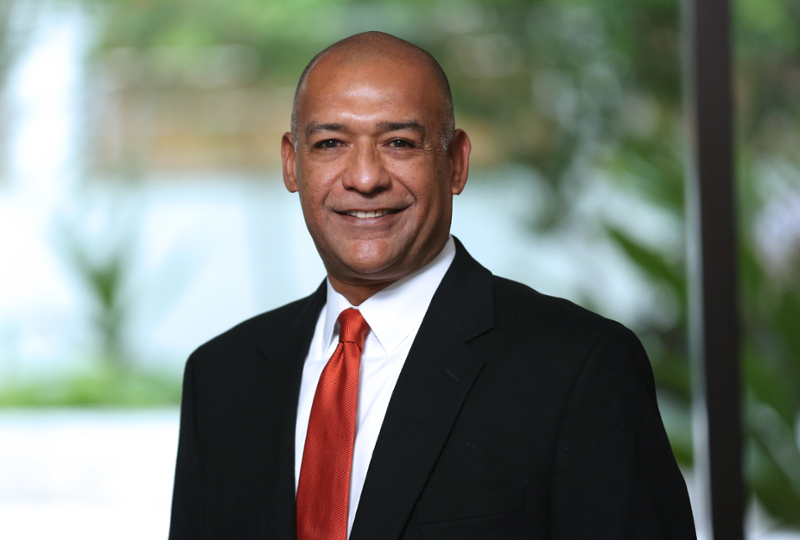
Our Faculty

Accounting PhD Rookie Camp
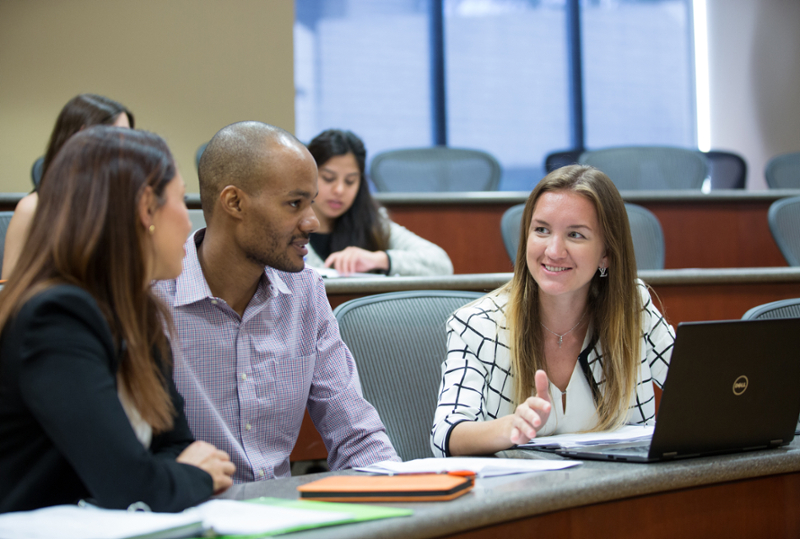
The PhD in Accounting is designed as a four-year program, though students without strong backgrounds in economics and statistics may take five years. During the first two years of the program, students take courses in accounting, economics, finance, econometrics, and other related disciplines. At the end of their second year, students are required to take a preliminary written exam.
All students in the PhD in Business also complete a core curriculum. Follow the link below for details.
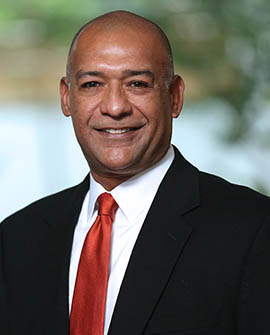
Dhananjay Nanda
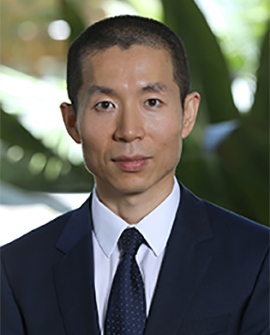
Khrystyna Bochkay
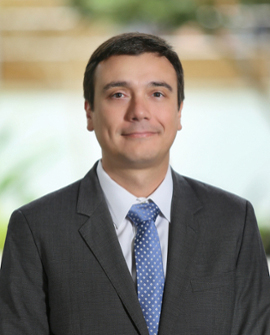
Miguel Minutti-Meza
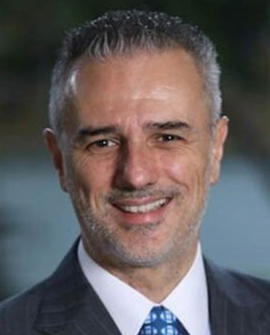
Fabrizio Ferri
Meet your program coordinator.

Start Your Miami Journey
- Request Info
- Check Status
Accounting PhD
Doctoral Program
The PhD in Accounting offers broad-based training that develops skills in conducting empirical research in accounting using archival data.
Start Your Bold Future
By submitting this form, I agree that UTSA may contact me by email, voice, pre-recorded message and/or text message using automated technology.
Please enable javascript in your browser
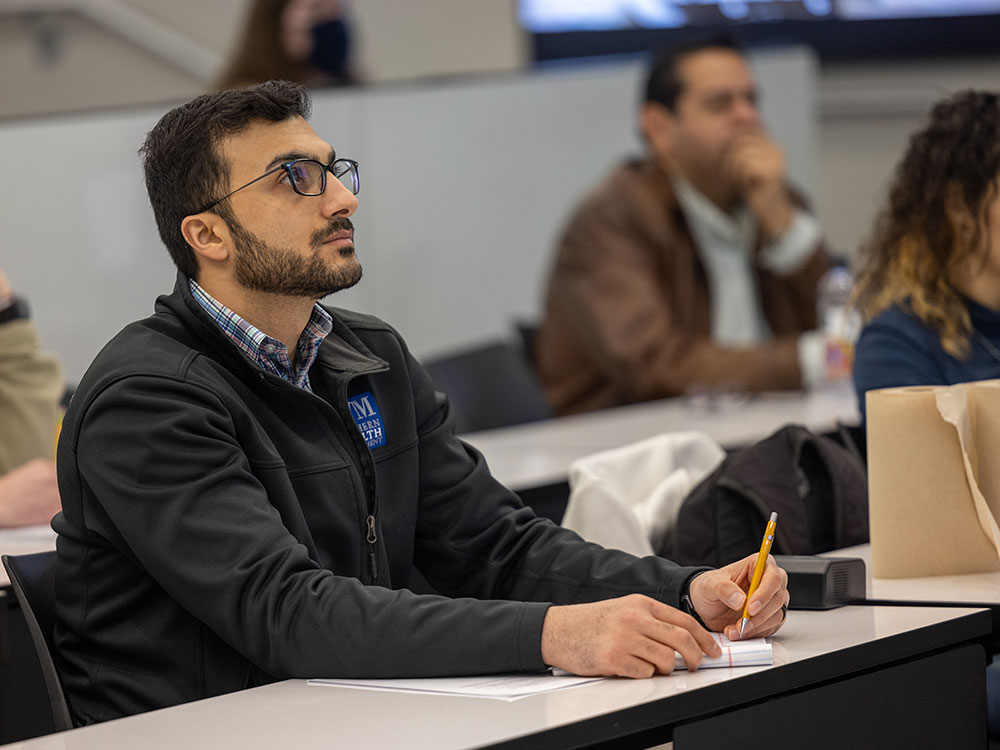
Why Pursue a PhD in Accounting
Program emphasis is placed on developing a set of research skills for addressing research questions broadly related to financial reporting, managerial accounting, corporate governance and auditing. Students work closely with faculty in small classes, seminars, research projects and other assignments aimed at developing strong competencies for conducting state-of-the-art research in accounting. The Accounting PhD is full time, with completion averaging between four and five years.
Program faculty members serve PhD students as teachers, mentors, supervisors, advisors, co-authors, dissertation committee members and in several other ways that enhance the students’ research experience and productivity in the program. The faculty members also play a critical role in assisting the students to secure top positions in academia, industry or government.
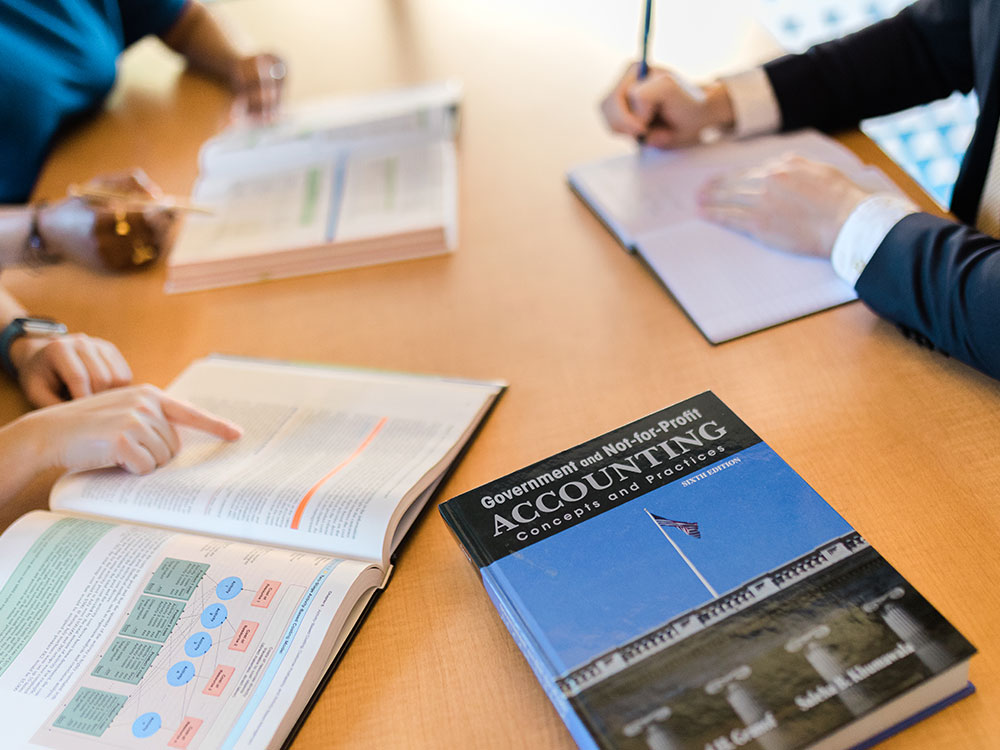
Research Opportunities
The Accounting PhD program is currently ranked No. 9 nationally in archival auditing research. Program faculty are a critical resource for this program, staffing high-quality faculty members with broad-based knowledge in various areas of accounting. Faculty have published their research in top journals in accounting and business. These publications have appeared in The Accounting Review , Journal of Accounting Research , Journal of Accounting & Economics , Contemporary Accounting Research , Review of Accounting Studies , Journal of Financial Economics , Journal of Corporate Finance , Journal of Accounting Literature and Accounting Horizons among others.
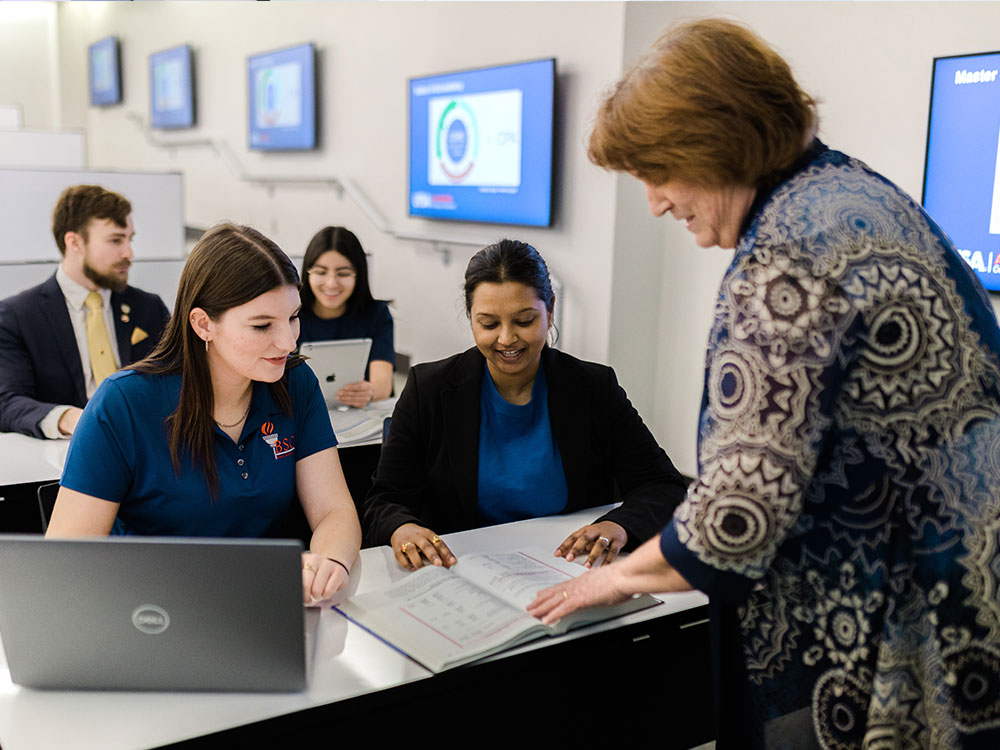
Careers in Higher Education and Research
The primary focus of a doctoral program is to prepare qualified candidates for academic careers in higher education, teaching, and research. Data predicts a strong demand for business school faculty for the next 15 years. Becoming a university faculty member is a gratifying experience that offers collaboration with students and other faculty, as well as fair compensation.
When you earn your degree, you will be prepared to start your professional career as an assistant professor at an academic institution. Faculty mentors at UTSA can assist you with finding the perfect job upon graduation. Program graduates are also qualified to hold research positions in government and industry.
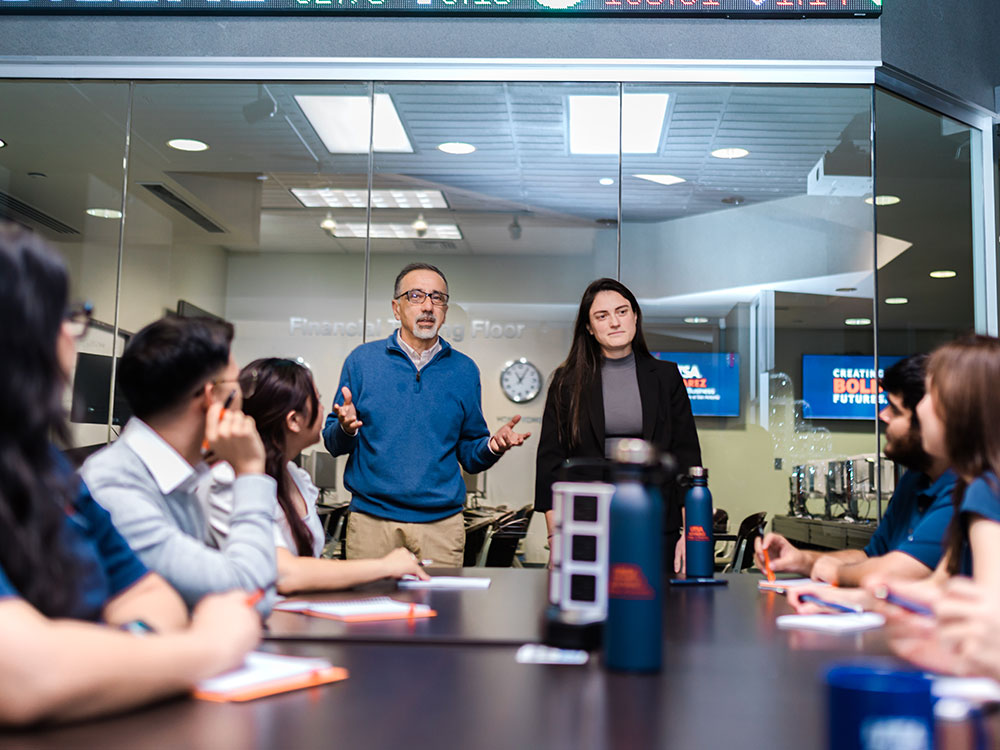
Register for an Info Session
Interested in learning more about UTSA’s Carlos Alvarez College of Business Accounting PhD program? Register to attend an upcoming Information Session where you’ll have the opportunity to review application procedures, learn admissions requirements and ask questions.
- Admission Requirements
Application Deadlines
Funding opportunities, career options, admission & application requirements.
Applications are submitted through the UTSA Graduate Application . Please upload all required documents (listed below) on your UTSA Graduate Application. It is the applicant’s responsibility to ensure completion and submission of the application, a nonrefundable application fee, and all required supporting documents are on file with UTSA by the appropriate application deadline.
Applicants are encouraged to have their admission file completed as early as possible. All applications, required documents and letters of recommendation, if applicable, must be submitted by 5:00 PM U.S. Central Time on the day of the deadline. Deadlines are subject to change.
Early application is strongly recommended to be considered for scholarships, assistantships or other forms of financial support. Please note that admission into the program is not a guarantee of financial support. PhD students who are selected for funding typically receive a financial package for a period of up to four years.
For more information about graduate funding, click below.
UTSA prepares you for future careers that are in demand. The possible careers below is data pulled by a third-party tool called Emsi, which pulls information from sources like the U.S. Bureau of Labor Statistics, U.S. Census Bureau, online job postings, other government databases and more to give you regional and national career outlook related to this academic program.
Earning a Master's Degree
While in a doctoral program, a student may earn a master’s degree provided the following conditions are satisfied:
- A student must be admitted to candidacy.
- A student is eligible to receive a master’s degree upon completion of University-wide requirements and any additional degree requirements specific to the program.
- The Doctoral Studies Committee, Department Chair, and the Graduate Associate Dean of the College must recommend students for the degree.
- The student must apply for graduation by the published deadline the semester prior to awarding the doctoral degree.
- All required coursework in the doctoral program at the time of admission to candidacy must have been taken within the previous six years.
- If the master’s degree requires a thesis, the degree cannot be awarded on the basis of the doctoral qualifying examination.
- Students will not be approved for an additional master’s degree in the same field in which an individual has previously received a master’s degree.
Course Offerings & Schedule
This is a full-time program and most courses are offered during the day. Students must enroll for nine hours in the fall semester, nine hours in the spring semester and three hours in the summer semester.
This program is does not offer a hybrid or fully online modality. All PhD programs in the college are in-residence and admitted students are expected to complete the program in-person.
PhD students normally serve as either a teaching assistant or research assistant throughout the program. These experiences are an important part of the training and overall doctoral experience. It would be difficult for someone to manage both a full-time job and the doctoral program’s requirements; therefore, it is not recommended.
Graduate Placements
- Auburn University
- Kennesaw State University
- Texas State University
- Stephen F. Austin State University
- University of Arkansas
- University of Houston-Victoria
- University of Maine
- University of Nevada-Reno
- University of Portland
- University of Wisconsin-Milwaukee
Frequently Asked Questions
Admission process, what are the key factors on which admissions are based, and who decides.
Admission is based on
- Undergraduate transcripts (and graduate, if applicable)
- Standardized test scores
- Recommendations from former professors or employers who can speak to your ability to do doctoral-level work at UTSA
The admission committee is looking for evidence that you understand the specific nature of the program that you are applying for, that you can articulate your scholarly intentions that fit with the research interests of current faculty and that you are academically prepared to succeed in the program.
The most important part of your application is your statement of purpose. Although outstanding grades and test scores are important, you should construct a clear, persuasive, well-written statement of purpose in order to be competitive.
I am completing an undergraduate degree. Am I eligible to apply?
Yes; however, you must take additional leveling courses and complete any graduate coursework where your academic background is insufficient. The catalog states that the PhD requirement is “66 hours beyond the master’s degree.” Therefore, the time required to complete a PhD will most likely be much longer for a candidate without a master’s degree than for a candidate with a master’s degree.
When are admission decisions made?
Admission decisions are typically made in March; however, exceptionally qualified candidates are considered earlier.
Can I submit GMAT/GRE test scores after the application deadline?
No. All application documents must be received by the application deadline and incomplete applications will not be considered. You will be required to upload unofficial copies within the Graduate Admissions Application.
Can I wait to submit the foreign credential evaluation (ECE transcript) until after I am accepted to UTSA?
No. Foreign credential evaluations must be received by the application deadline for your application to be processed. Processing time may take up to three weeks, and students should plan accordingly with the admission deadlines of the programs for which they are applying.
Do you accept WES transcript evaluations?
All NACES accredited evaluators are accepted.
Program Expectations
What should i expect as a doctoral student.
Your role and the expectations will change as you progress in the program. Initially, your role will be as a student with the expectation that you attend and participate in doctoral seminars with other students. Expect to read a great deal and write papers.
To prepare to become a university professor, you will work closely with faculty members to learn how to teach. You will start as a teaching assistant and work toward teaching classes independently.
Conducting research is another area of focus where you will work closely with faculty on research projects. Under the direction of a faculty committee, you will conduct original research that will be the basis for your dissertation.
How long does this program take to complete?
Most students will need four years. Plan for at least two years to complete the coursework. Add another year to pass the comprehensive exams, develop a dissertation topic and defend your dissertation proposal. Dedicate your final year(s) to dissertation research.
Are PhD students required to teach?
Teaching is crucial to your academic career and job prospects. Every PhD student should gain teaching experience before graduating. Initially, students may work as research assistants for faculty members and may also assist in teaching various courses. For students who receive stipends, they will most likely teach an undergraduate course at the Carlos Alvarez College of Business during their program.
What are the research requirements of the PhD program?
The PhD program requires students to research while they complete formal coursework and during the summers. As research assistants, students work with faculty members in joint research activities and pursue their research objectives under the supervision of faculty members. The goal is to create papers to present at academic meetings and submit to research publications by the time the student is ready to begin their dissertation research. To be competitive in the academic job market, students should prioritize producing papers and publications while in the program.
As a PhD student, who will advise me?
Your program admission will identify an initial PhD advisor. However, as your interests and research agenda develop toward preparing a dissertation proposal, a different faculty member may emerge as the appropriate advisor for your dissertation research. Your initial advisor will help you assemble a program committee of faculty, who will advise you regarding your dissertation.
Can you waive my application fee?
You may request an application waiver if
- You are a McNair Scholar
- Active-duty military or a veteran of the US Armed Forces
- If you are an applicant who has attended a PhD Project Conference
Please complete the Request to Waive Doctoral Application Fee if you meet one or more of the above criteria.
Approved applicants will receive a single-use coupon code to enter into the payment field of the online application.
Can you waive the GMAT/GRE test score requirement?
We do not offer waivers for standardized test scores.
Is there a waiver for the TOEFL/IELTS exam requirement?
TOEFL scores may be waived for international students from countries where English is the official language or for non-citizens of the United States who have earned a regionally accredited bachelor’s degree or higher in the United States (or other countries where English is the official language) as indicated in the Graduate Catalog ( https://catalog.utsa.edu/policies/admission/graduate/internationalgraduatestudents/ ).
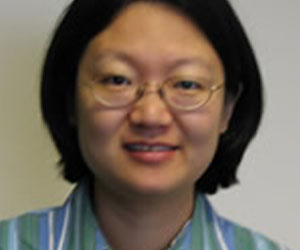
Graduate Advisor of Record
Jennifer Yin, PhD
(210) 458-7090

Pursuing a PhD in Accounting in the USA: What You Need to Know
May 26, 2023

So, you’re thinking about pursuing a PhD in Accounting in the USA? You’ve come to the right place! In this comprehensive guide, we’ll cover everything you need to know about pursuing a PhD in Accounting in the USA.
Why a PhD in Accounting is a Rewarding Choice
A brief overview of accounting phd programs in the usa, top universities offering accounting phd programs in the usa, how to choose the right accounting phd program for you, prerequisites for pursuing a phd in accounting in the usa, application process for an accounting phd program in the usa, funding options for an accounting phd program in the usa, coursework and curriculum for an accounting phd program in the usa, research opportunities available for an accounting phd candidate, potential career paths with a phd in accounting from the usa, challenges and solutions faced by international students pursuing an accounting phd in the usa, salary expectations and job outlook for graduates with a phd in accounting from the usa, tips for success while pursuing a phd in accounting in the usa, conclusion: is pursuing a phd in accounting from the usa worth it.
If you’re passionate about the field of accounting, then a PhD in Accounting is definitely a rewarding choice. Not only will it deepen your knowledge of the subject and enable you to become an expert in the field, but it will also open up a wealth of career opportunities for you. With a PhD in Accounting, you’ll be able to pursue academic positions, as well as roles in government, public accounting firms, and private corporations.
Moreover, a PhD in Accounting can also lead to opportunities for research and publication, which can enhance your professional reputation and contribute to the advancement of the field. Additionally, pursuing a PhD in Accounting can provide you with the opportunity to network with other professionals in the field, attend conferences and workshops, and collaborate on research projects. All of these experiences can help you to develop a strong professional network and stay up-to-date with the latest developments in the field of accounting.
Accounting PhD programs in the USA are designed to provide students with both a theoretical and practical understanding of accounting. Students in these programs will typically engage in a combination of coursework and research activities, which will prepare them for a career in academia or industry. Most PhD programs in Accounting also require students to complete a dissertation, which should be an original piece of research that makes a contribution to the field.
Additionally, many Accounting PhD programs offer opportunities for students to gain teaching experience by serving as teaching assistants or instructors for undergraduate accounting courses. This experience can be valuable for those pursuing a career in academia, as it demonstrates their ability to effectively communicate complex accounting concepts to students. Furthermore, some programs may offer specialized tracks or concentrations, such as taxation or auditing, allowing students to focus their research and coursework in a specific area of accounting.
There are many top universities in the USA that offer PhD programs in Accounting. Some of the best ones include the University of Texas at Austin, Stanford University, the University of Pennsylvania, Harvard University, and the University of Chicago. It’s important to do your research and find a program that fits your needs and interests.
When considering a PhD program in Accounting, it’s important to look beyond just the reputation of the university. Factors such as faculty expertise, research opportunities, and funding options should also be taken into account. Additionally, it may be helpful to reach out to current students or alumni to get a better understanding of the program’s strengths and weaknesses. By doing your due diligence, you can ensure that you choose a program that will set you up for success in your career.
Choosing the right accounting PhD program can be a daunting task. However, it’s important to consider factors such as program reputation, faculty research interests, and location. You should also consider the program’s curriculum and whether it aligns with your research interests and professional goals. It’s important to research each program carefully to make sure it’s the right fit for you.
Another important factor to consider when choosing an accounting PhD program is the availability of funding and financial support. Pursuing a PhD can be expensive, and it’s important to find a program that offers financial assistance, such as scholarships, fellowships, or teaching assistantships. Additionally, some programs may offer opportunities for research assistantships or internships, which can provide valuable experience and help offset the cost of tuition and living expenses. Be sure to research the financial support options available at each program you are considering.
Before you can pursue a PhD in Accounting in the USA, you’ll need to meet certain prerequisites. These typically include a bachelor’s and/or master’s degree in accounting, a high GPA, and GRE scores. Additionally, some programs may require work experience or proficiency in certain areas, such as statistics or economics.
It’s important to note that meeting these prerequisites does not guarantee acceptance into a PhD program in accounting. Admissions committees also consider factors such as research experience, letters of recommendation, and personal statements. It’s recommended that applicants have a clear research interest and a strong understanding of the field of accounting.
Once accepted into a PhD program in accounting, students can expect to spend several years conducting research, attending seminars and conferences, and teaching undergraduate courses. The ultimate goal of a PhD in accounting is to produce original research that contributes to the field and prepares graduates for careers in academia or research.
The application process for getting into an accounting PhD program in the USA can be a complex and time-consuming process. You’ll typically need to submit transcripts, GRE scores, letters of recommendation, and a personal statement. It’s important to start the application process early and to put forth a strong application that reflects your passion and experience in the field of accounting.
One important aspect of the application process is selecting the right program for you. It’s important to research different universities and their accounting PhD programs to find the one that best fits your interests and career goals. You should also consider the faculty and their research areas to ensure that they align with your own research interests.
Another important factor to consider is funding. PhD programs in accounting can be expensive, and it’s important to explore all funding options, such as scholarships, grants, and assistantships. It’s also important to consider the cost of living in the area where the university is located, as this can vary greatly depending on the location.
Accounting PhD programs in the USA can be expensive, but there are many funding options available to help you pay for your education. Some of the most common funding options include scholarships, fellowships, research assistantships, and teaching assistantships. It’s important to explore all funding opportunities and to talk to your potential program about available options.
One funding option that is often overlooked is employer sponsorship. Many companies offer tuition reimbursement programs for employees who are pursuing advanced degrees. If you are currently working in the accounting field, it’s worth checking with your employer to see if they offer any financial assistance for continuing education.
Another funding option to consider is external grants and awards. There are many organizations that offer funding for graduate students in accounting, such as the American Institute of Certified Public Accountants (AICPA) and the National Science Foundation (NSF). These grants and awards can provide significant financial support and also add to your resume and professional network.
Learn More: PHD IN MANAGEMENT IN THE USA WITHOUT GMAT
The coursework and curriculum for an accounting PhD program in the USA will vary by institution. However, most programs will require students to complete advanced coursework in accounting theory, research methodology, and business management. Additionally, students will typically be required to complete comprehensive exams and participate in research projects or seminars.
Some accounting PhD programs may also require students to complete coursework in related fields such as economics, finance, or statistics. This interdisciplinary approach allows students to gain a broader understanding of the business world and how accounting fits into it.
Another important aspect of an accounting PhD program is the opportunity for students to work closely with faculty members on research projects. This not only helps students develop their research skills, but also allows them to contribute to the field of accounting through their own research findings.
Research is a key component of any accounting PhD program. PhD candidates in Accounting will typically have access to a wide range of research opportunities, including working on faculty research projects, conducting independent research, and participating in research seminars and conferences. It’s important to take advantage of these opportunities to develop your research skills and build your academic profile.
There are many potential career paths for individuals with a PhD in Accounting from the USA. Some of the most common career paths include academia, government, public accounting firms, and private corporations. Additionally, individuals with a PhD in Accounting may go on to pursue consulting or research positions.
International students pursuing an accounting PhD in the USA may face unique challenges, such as cultural differences and language barriers. However, there are many solutions available to help international students navigate these challenges, including language programs, mentorship programs, and international student organizations. It’s important to take advantage of these resources to make the most of your academic experience in the USA.
Graduates with a PhD in Accounting from the USA can expect to earn a lucrative salary and have a strong job outlook. According to the US Bureau of Labor Statistics, the median annual wage for postsecondary teachers of business and financial operations was $80,300 in May 2020. Additionally, the job outlook for postsecondary teachers is expected to grow by 9% from 2020 to 2030, which is faster than the average for all occupations.
Pursuing a PhD in Accounting in the USA can be challenging, but there are many tips for success that can help you thrive in your academic career. These may include staying organized, developing research skills, building relationships with faculty and peers, and taking advantage of all available resources. Additionally, it’s important to stay motivated and passionate about your research and your career goals.
Pursuing a PhD in Accounting from the USA can be a challenging but highly rewarding experience. If you’re passionate about the field of accounting and interested in pursuing a career in academia or industry, then a PhD in Accounting may be the right choice for you. By considering the information and advice provided in this guide, you can make an informed decision about pursuing a PhD in Accounting in the USA and set yourself up for a successful and fulfilling academic career.
Leave a Comment Cancel reply
Save my name, email, and website in this browser for the next time I comment.
most recent

Visit to USA
Discover the best christmas markets in the us.

10 Most Haunted Places in the United States

Discover the Best Roller Coaster Parks in the US

Discover the Best Fall Foliage in the USA

Discover the Best Glamping Destinations in the USA

Discover the Best Theme Parks in the US
PH +1 000 000 0000
24 M Drive East Hampton, NY 11937
© 2024 INFO
Information Systems Ph.D. Application and Admission
Admission requirements.
The Ph.D. in Information Systems program is governed by University of Nevada, Reno Graduate School requirements. To apply, browse to the Graduate School Application Portal , create an account, and then choose “Business Administration PhD” for Program of Study, and “Business – Information Systems PhD” for the Sub-plan/Emphasis for Program of Study.
Applicants should submit the followings:
- Official transcripts from all post-secondary educational institutions,
- Resume or Curriculum Vitae,
- A statement of purpose that provides information on the applicant’s academic background, aptitude for research, work and research experience, and motivation for seeking a PhD in Information Systems. Statement of purpose must also outline the applicant’s research interests (and how they relate to Information Systems) and highlight any qualifications that may distinguish them from other applicants.
- A minimum of two (preferably three) letters of recommendation from people familiar with the applicant’s academic records and aptitude for doctoral work in Information Systems. Current or former professors with significant interaction with the applicant are the recommenders of choice. For applicants who are employed in a field related to Information Systems, a letter from an employer can also be of value.
- GMAT or GRE scores (preferred, not mandatory). Use the University of Nevada, Reno, (code: 4844) to submit the scores.
- Published and/or working research papers (preferred, not mandatory)
- Shortlisted applicants will be interviewed online via Zoom.
International students
International students must fulfill all University of Nevada, Reno Graduate School requirements , including the English exam scores if your educational history is from a non-English speaking country. An exemption from English exams is granted if you are a US citizen or you have a degree from certain English-speaking countries .
International students are also encouraged to consult the Office of International Students and Scholars .
Application deadlines
Our priority application deadline for the Fall semester is on March 15 th and the first round of application review will commence in the last week of March 2024; thus, early applications are strongly encouraged. Although we continue accepting applications until April 15 th , priority will be given to applications that are submitted before March 15 th .

IMAGES
VIDEO
COMMENTS
This page shows a selection of the available PhDs in United States. If you're interested in studying a Accounting degree in United States you can view all 35 PhDs. You can also read more about Accounting degrees in general, or about studying in United States. Many universities and colleges in United States offer English-taught PhD's degrees.
A PhD in Accounting from the Tippie College of Business at The University of Iowa brings teaching skills, mentored research, and a publishing record that tees you up for top-tier faculty positions. Ph.D. / Full-time / On Campus
The PhD Program in Accounting at the University of Rochester provides students with the opportunity to make substantive contributions to the literature by taking advantage of the Simon School's strong economics and quantitative training.
The University of Texas at Austin was ranked number one in the country for Accounting PhD programs by the US World & News Public Accounting Report. The University's McCombs School offers one of the top accounting doctoral programs that welcomes students with diverse disciplines such as economics, mathematics, finance, and engineering.
Accounting. Our doctoral program in the accounting field offers broadly based, interdisciplinary training that develops the student's skills in conducting both analytical and empirical research. Emphasis is placed on developing a conceptual framework and set of skills for addressing questions broadly related to accounting information.
Henry Kaufman Management Center. 44 West 4th Street. Suite No. 10-84. Phone: 212-992-6812. Email: [email protected]. NYU Stern's PhD program in accounting aims to prepare students for faculty positions as researchers and teachers in top academic institutions.
PhD Program. Wharton's Ph.D. program in Accounting trains students to be successful academic researchers. To this end, the program is designed to provide students with opportunities to learn to develop their own research ideas and to learn to implement appropriate research methods. Students learn these skills through rigorous coursework, as ...
ACADEMIC LEADERSHIP. Both U.S. News & World Report and Public Accounting Report rank the Texas McCombs Accounting PhD program number one in the nation, reflecting the program's diversity and excellence across education and scholarship. Our distinguished faculty members research various specializations, including financial reporting ...
Accounting. Chicago Booth has one of the preeminent PhD accounting programs. Our faculty conduct groundbreaking scholarly work, and our graduates have played a central role in the evolution of modern accounting research. As a PhD student in accounting at Booth, you'll have the freedom to explore and cultivate your research interests from day ...
The doctoral program in Accounting and Management, which falls under the PhD in Business Administration, focuses on understanding the role of information and measurement systems for: allocating resources among firms in the economy and between departments or divisions of individual firms; rewarding and monitoring the performance of managers; formulating, executing and evaluating strategy by ...
PhD Admissions in Accounting. The Accounting Doctoral Program is highly competitive; fewer than 5% of applicants are admitted in the typical year. To begin the application process, we'll ask you to create an account with us. This will keep your application secure and allow you to edit and revise your information before final submission.
Ph.D. in Accounting. The doctoral program at the KU School of Business prepares students for research and teaching careers at major universities. As a doctoral student in accounting, you will have the opportunity to work with internationally known faculty members on a variety of research projects. The program includes a combination of ...
A key element of the Ph.D. in accounting program is collaborative work between doctoral students and faculty members. We strive to maintain a program with approximately 12 full-time, in-residence students. This size of the Accounting Ph.D. program allows for effective faculty-student interrelationships, collaboration and competitive funding for ...
The University of Texas at Austin. Out of all of the programs listed here, the McCombs School of Business at the University of Texas offers, by some accounts, offers the top PhD in Accounting program in the country. According to the Public Accounting Report of 2019, it is the #1 program in the nation. The Texas McCombs PhD, as the program is ...
December 15, 2023: Application Deadline - Accounting, Data Sciences & Operations, and Management & Organization* January 15, 2024: Application Deadline - Finance & Business Economics and Marketing . The link to the PhD Program application is available on the Admissions page and the next opportunity to apply is for Fall 2024 admission.
Special Curriculum Opportunities. View our current Accounting PhD students. PhD students enrolled in the UNC Kenan-Flagler Accounting-Taxation doctoral program benefit enormously from the department's international reputation as one of the world's leading academic centers of innovative accounting and tax research.
The PhD in Accounting is designed as a four-year program, though students without strong backgrounds in economics and statistics may take five years. During the first two years of the program, students take courses in accounting, economics, finance, econometrics, and other related disciplines. At the end of their second year, students are ...
A PhD in Accounting near United States (or doctorate in accounting degree) is considered an advanced graduate degree that prepare students for potential careers at the highest levels of the accounting field in private, public, and government accounting, as well as in education. Graduates holding a Doctorate in Accounting are notionally prepared ...
Accounting (PhD) Admission is only available for the Fall semester Required Degree: Bachelor's Degree from an accredited college or university in the United States or have proof of equivalent training at a foreign institution.: Minimum GPA: 3.0 (on a 4.0 scale) Departments may consider GPA of last 60 semester credit hours Coursework: 18 credit hours in an area related to this graduate degree ...
The Ph.D. concentration in accounting provides students with the skills necessary to become productive scholars and teachers at major universities. Initially, all doctoral students complete a core curriculum that provides skills in research design and statistical analysis. Students must also complete four doctoral seminars: ACCT 832 Doctoral ...
PhDs in Accounting are in high demand. This degree can prepare you for a career in academia, corporate accounting, legal work and financial regulation. "Full funding" is a financial aid package for full time students that includes full tuition remission and an annual stipend or salary for the three to six-year duration of the student's ...
A Brief Overview of Accounting PhD Programs in the USA. Accounting PhD programs in the USA are designed to provide students with both a theoretical and practical understanding of accounting. Students in these programs will typically engage in a combination of coursework and research activities, which will prepare them for a career in academia ...
The Katz PhD in Accounting program at the University of Pittsburgh provides students with the foundation to excel as faculty members at leading universities. Ph.D. / Full-time / On Campus University of Pittsburgh Pittsburgh, Pennsylvania, United States
The Ph.D. in Information Systems program is governed by University of Nevada, Reno Graduate School requirements. To apply, browse to the Graduate School Application Portal, create an account, and then choose "Business Administration PhD" for Program of Study, and "Business - Information ...
Johnston Community College (JCC) in Smithfield, North Carolina offers an introduction to accounting careers with one of the lowest attendance costs on our list.JCC's certificates and Associate ...